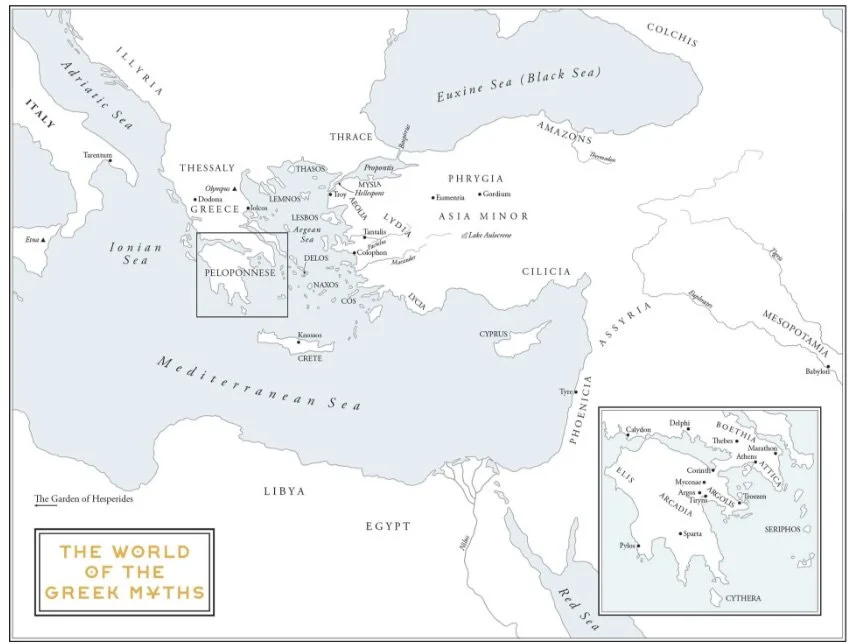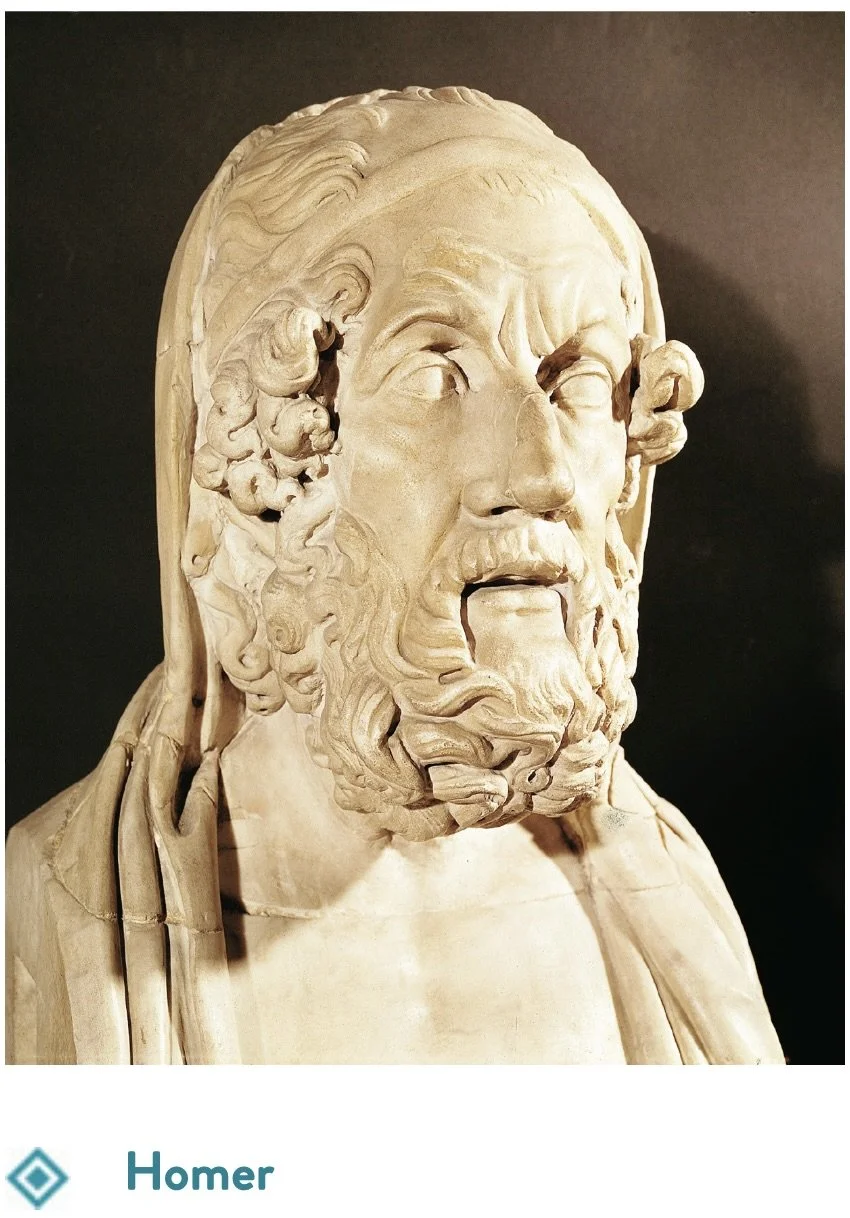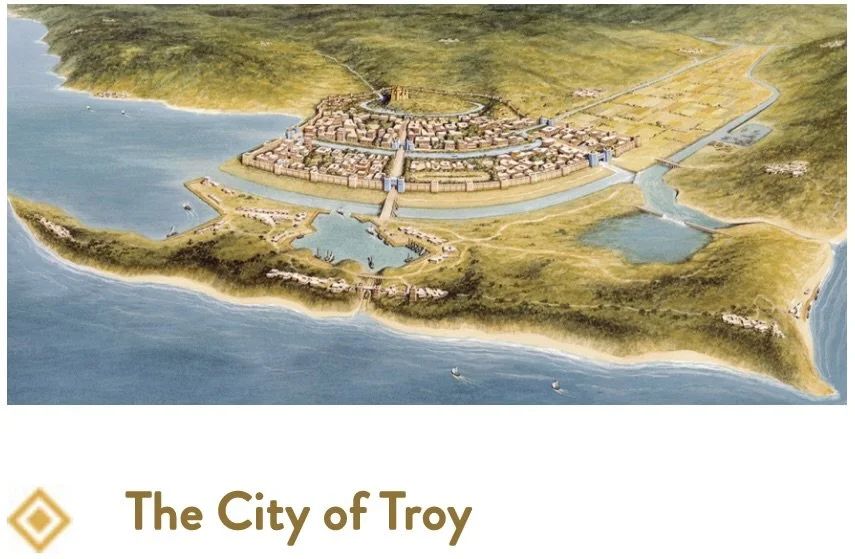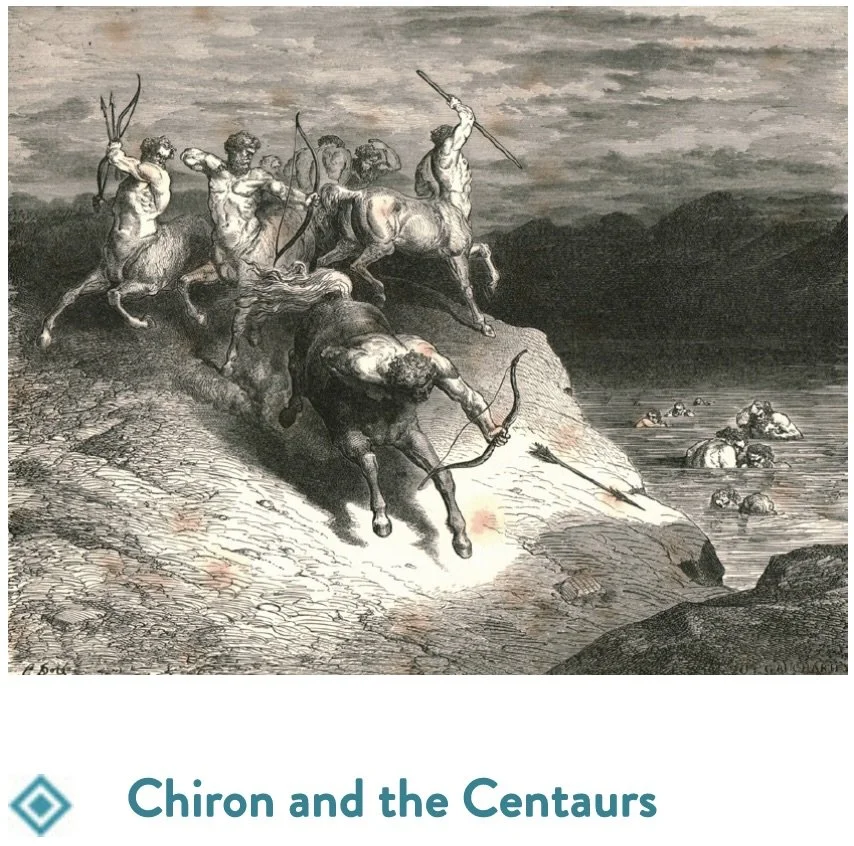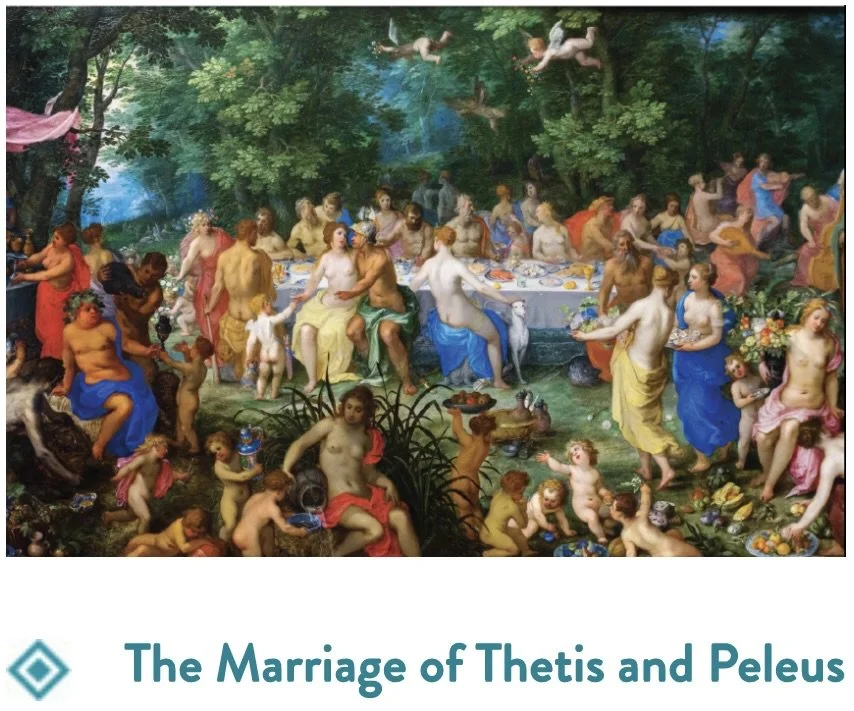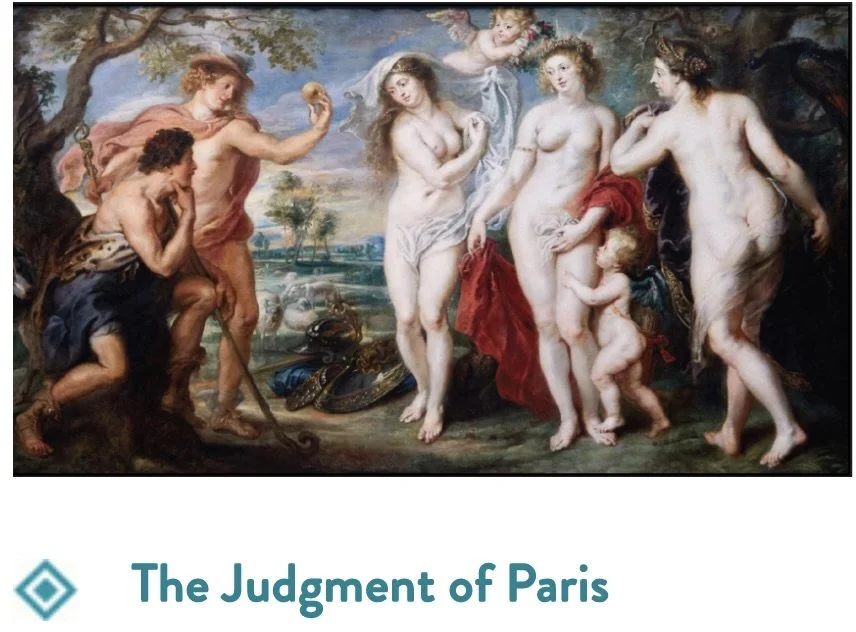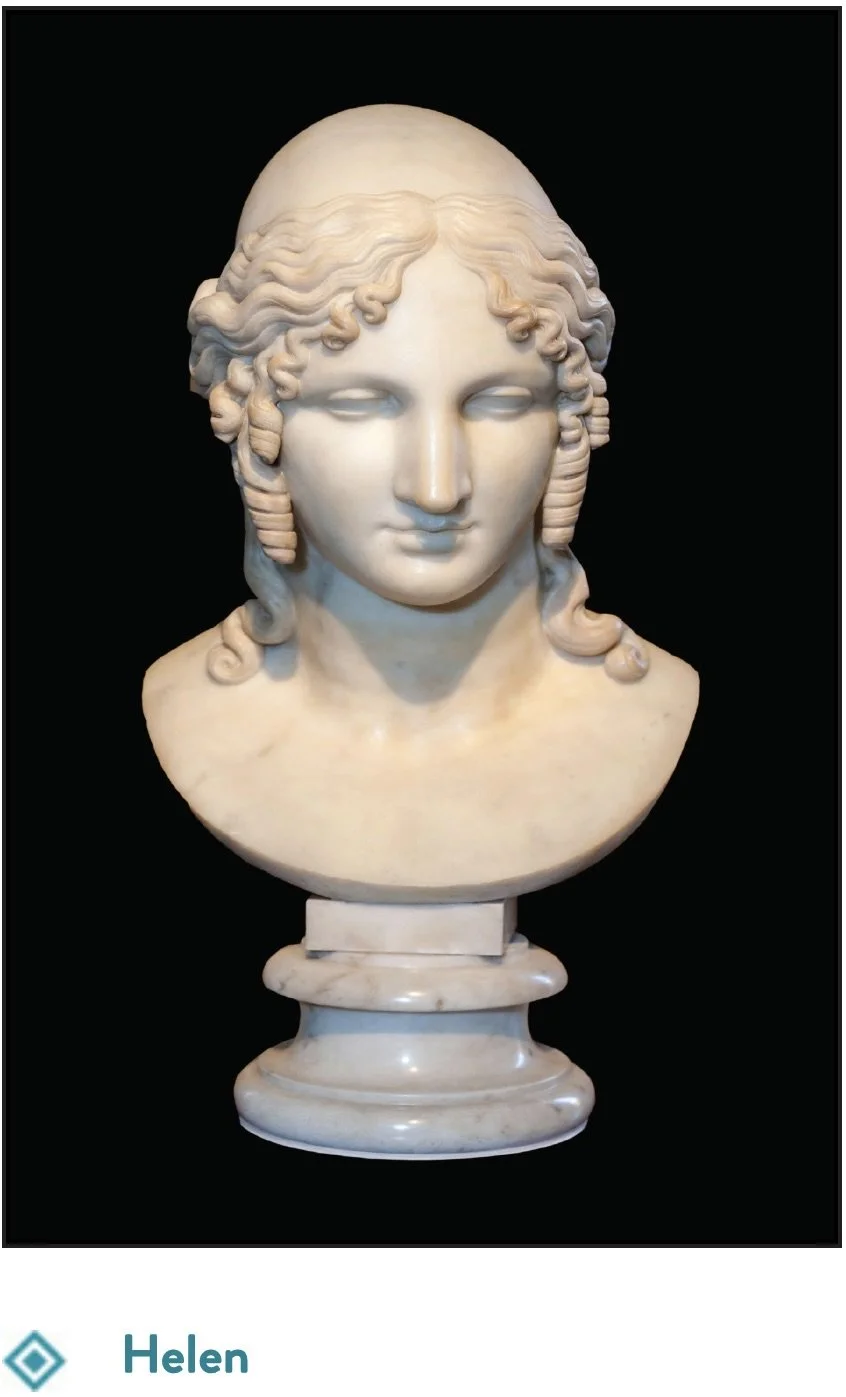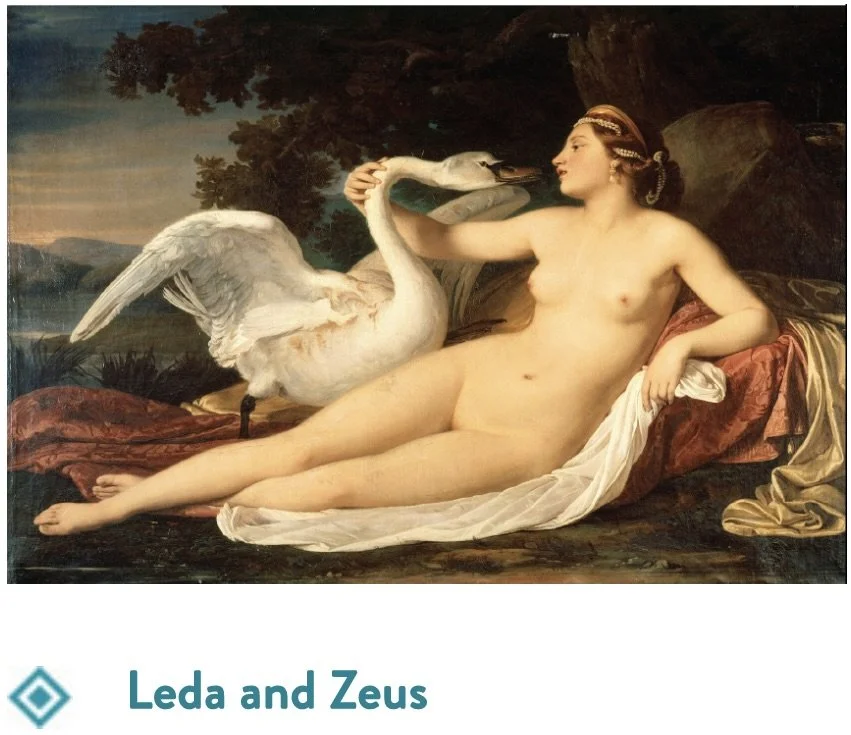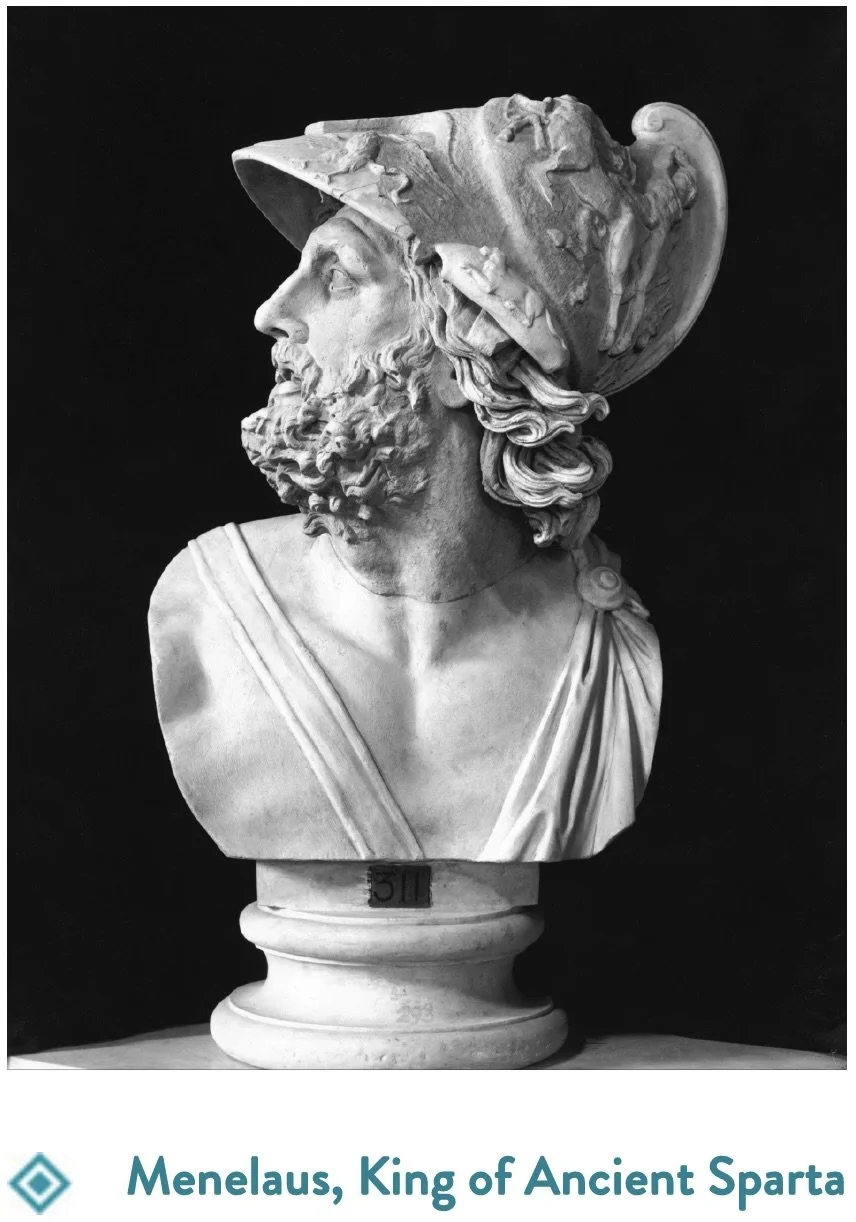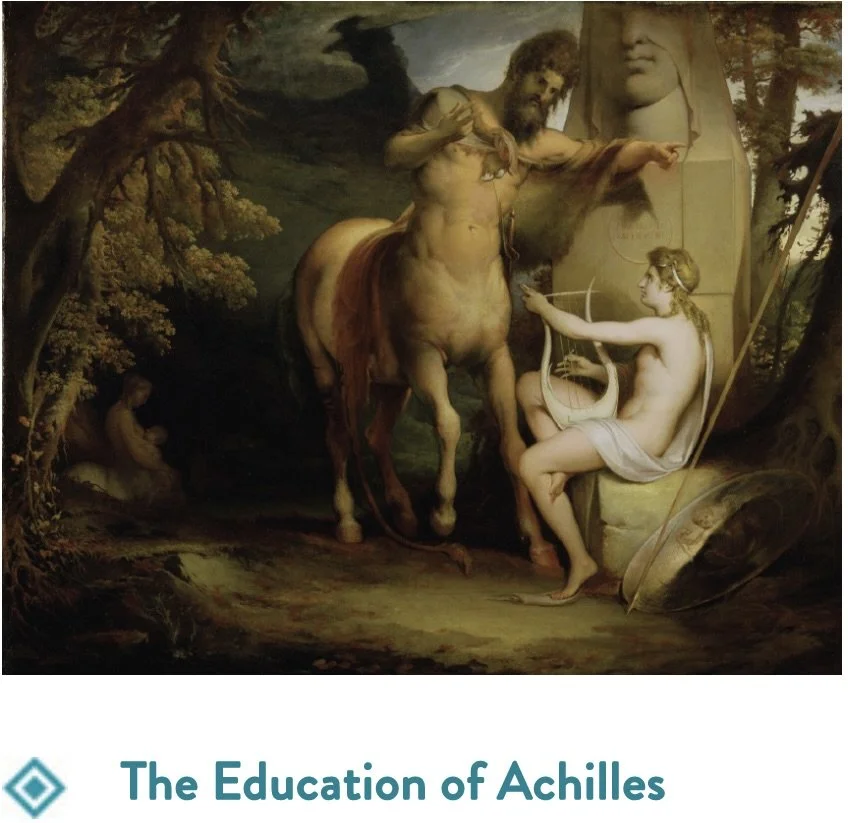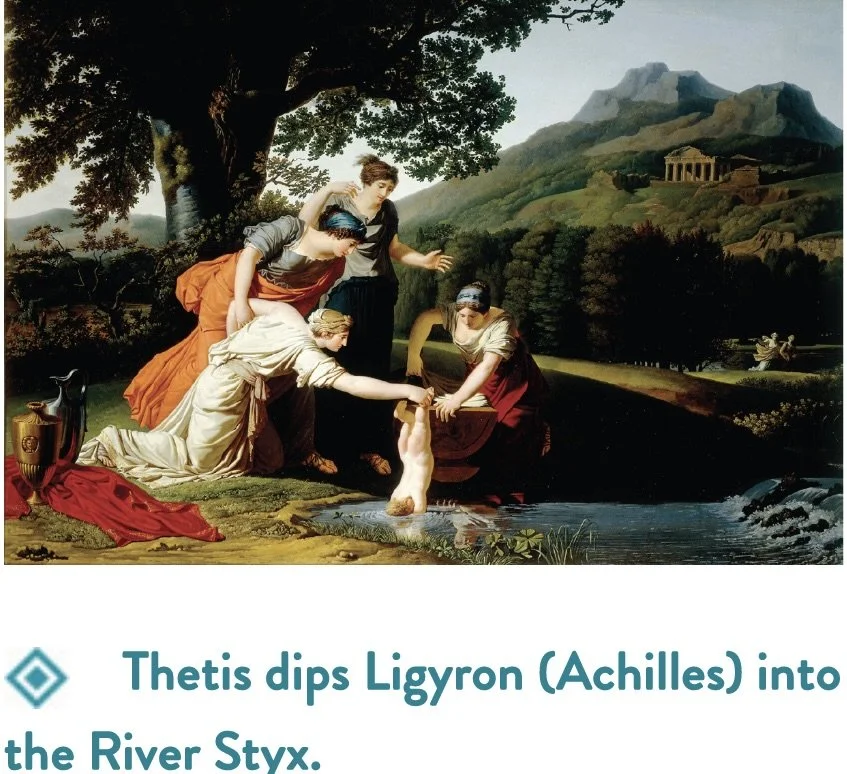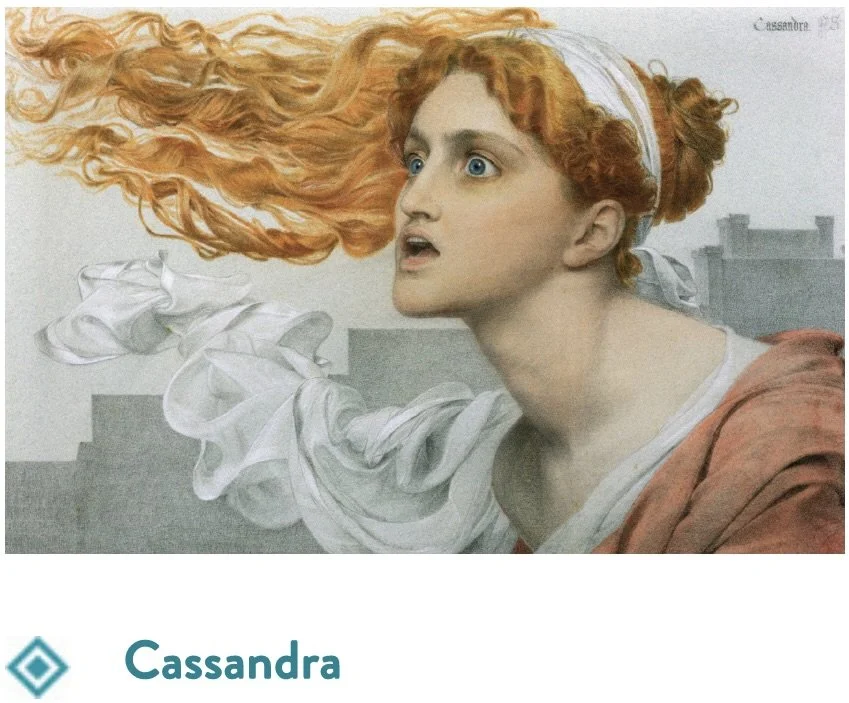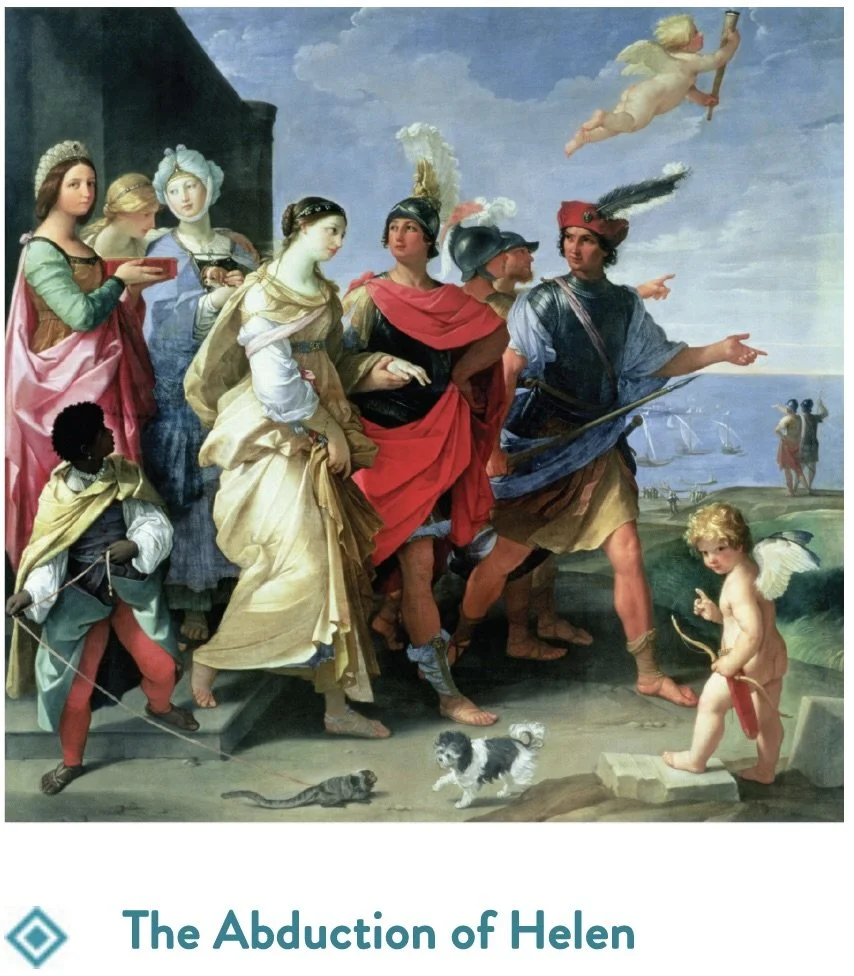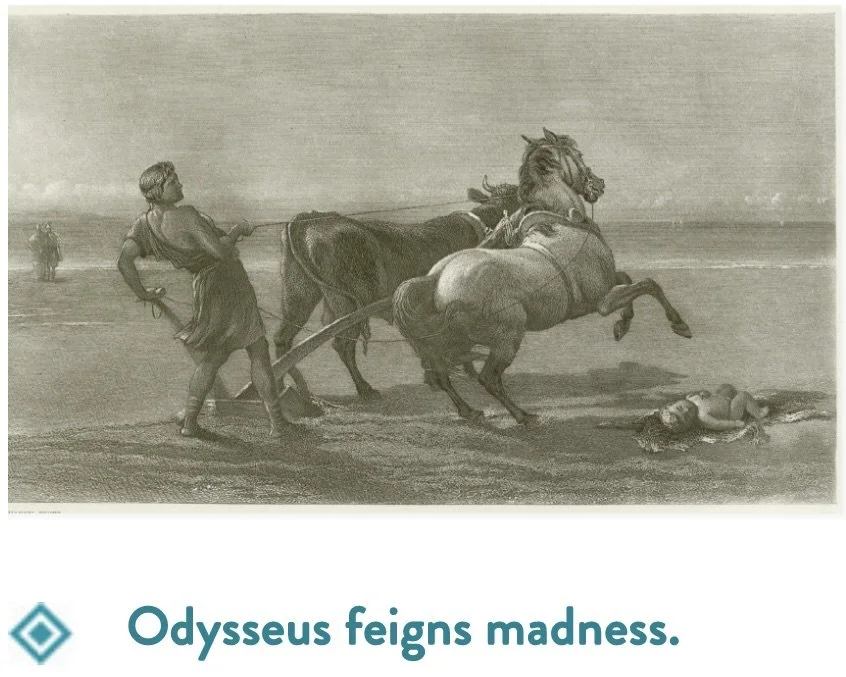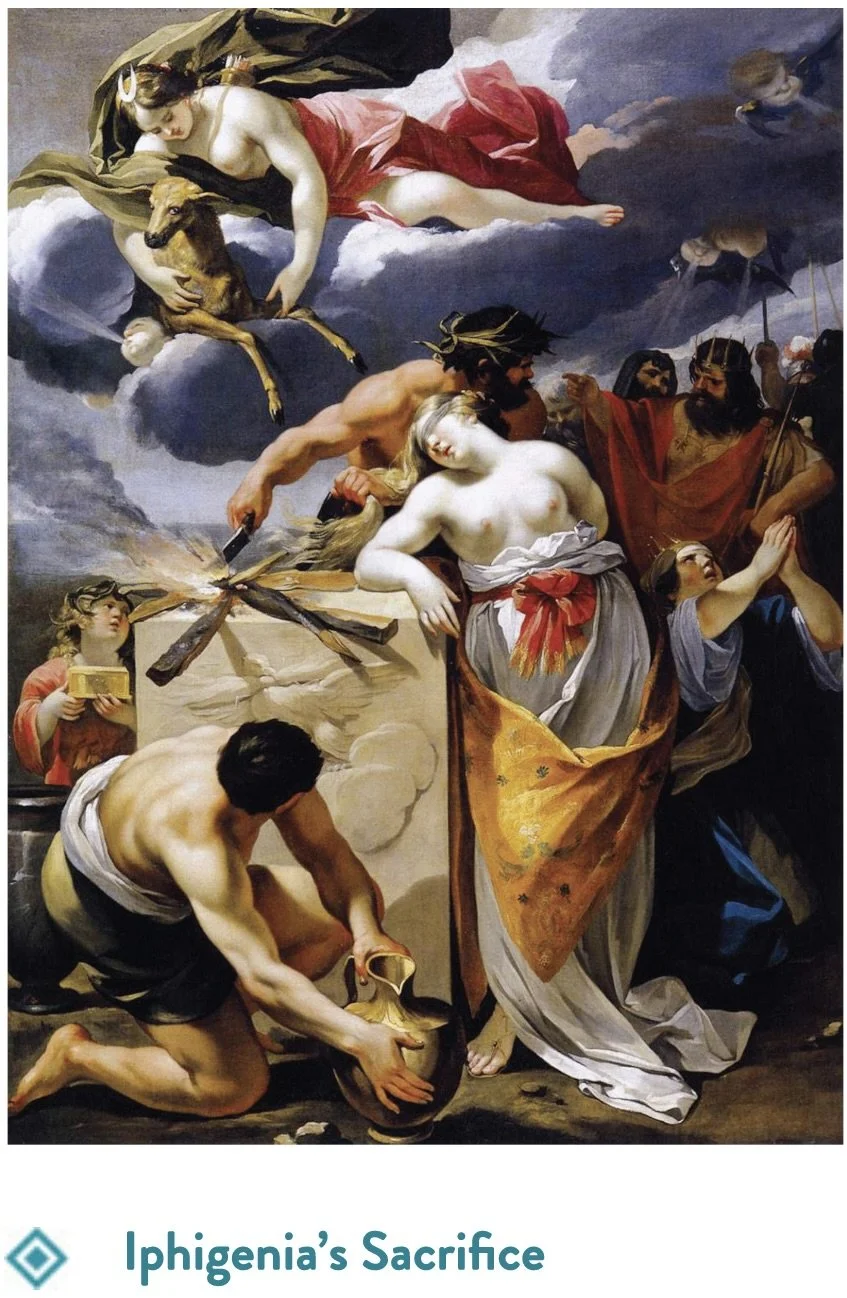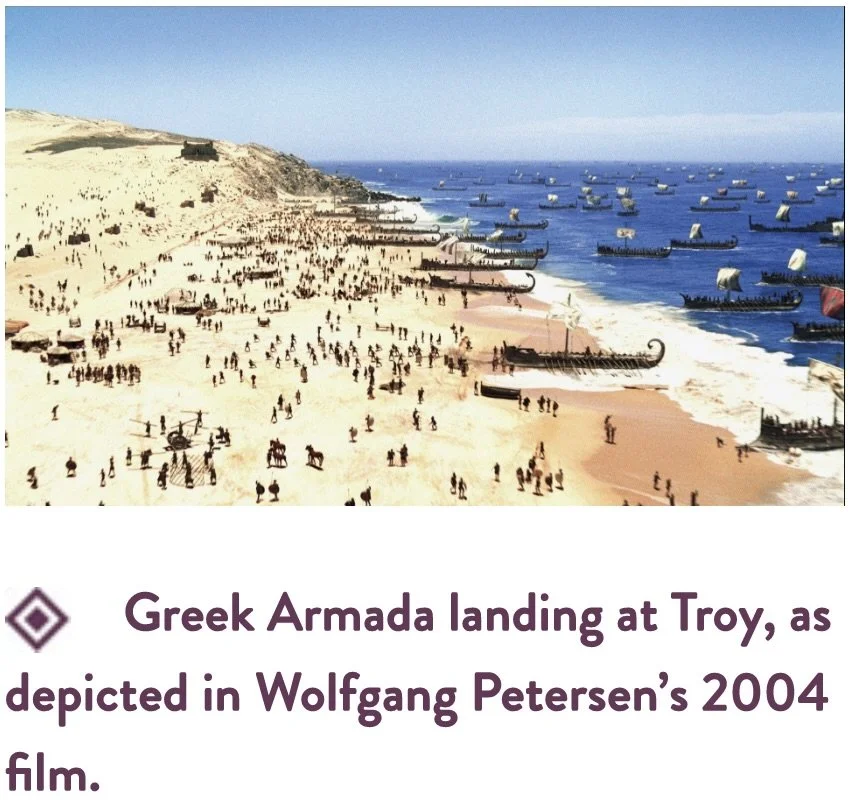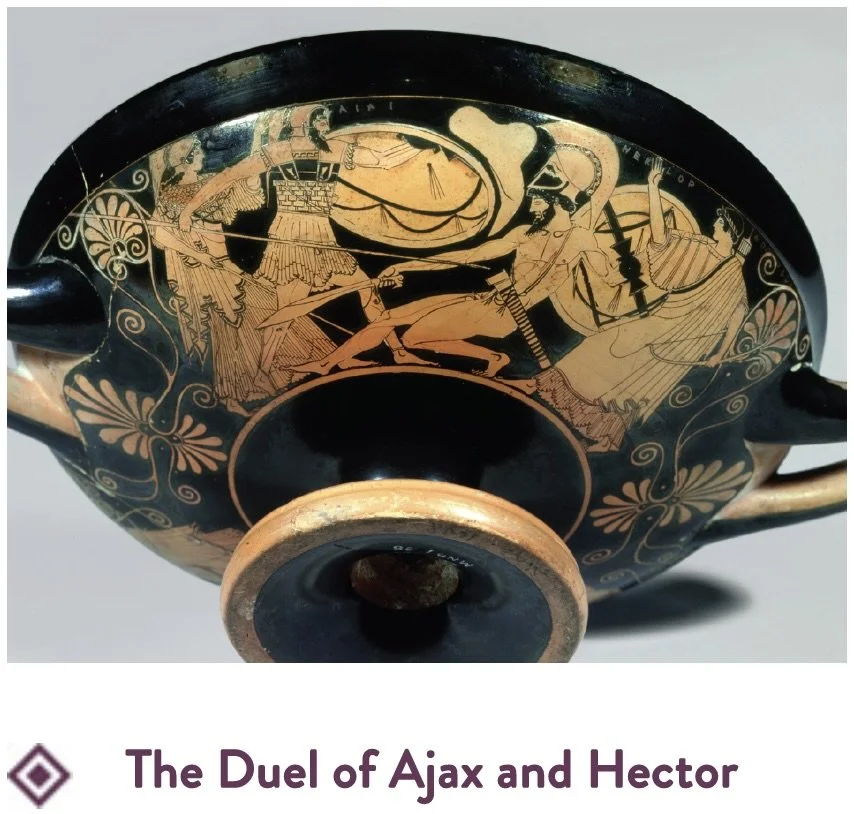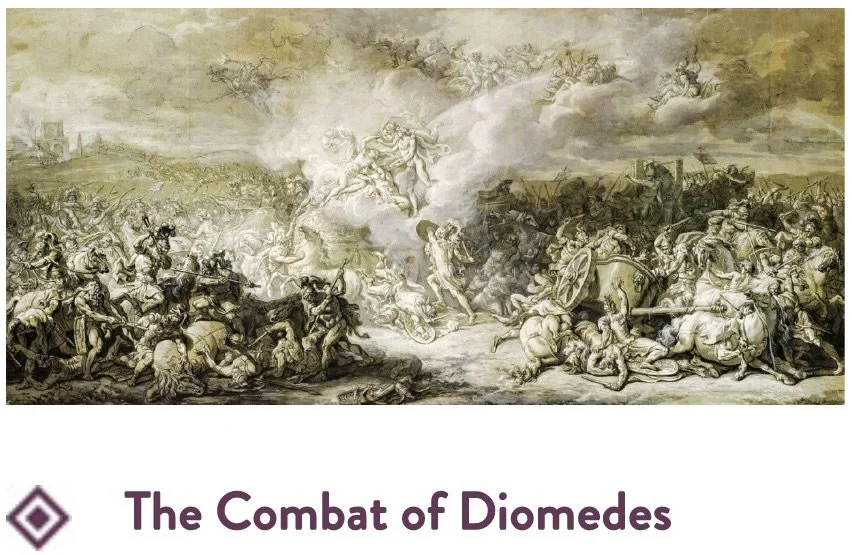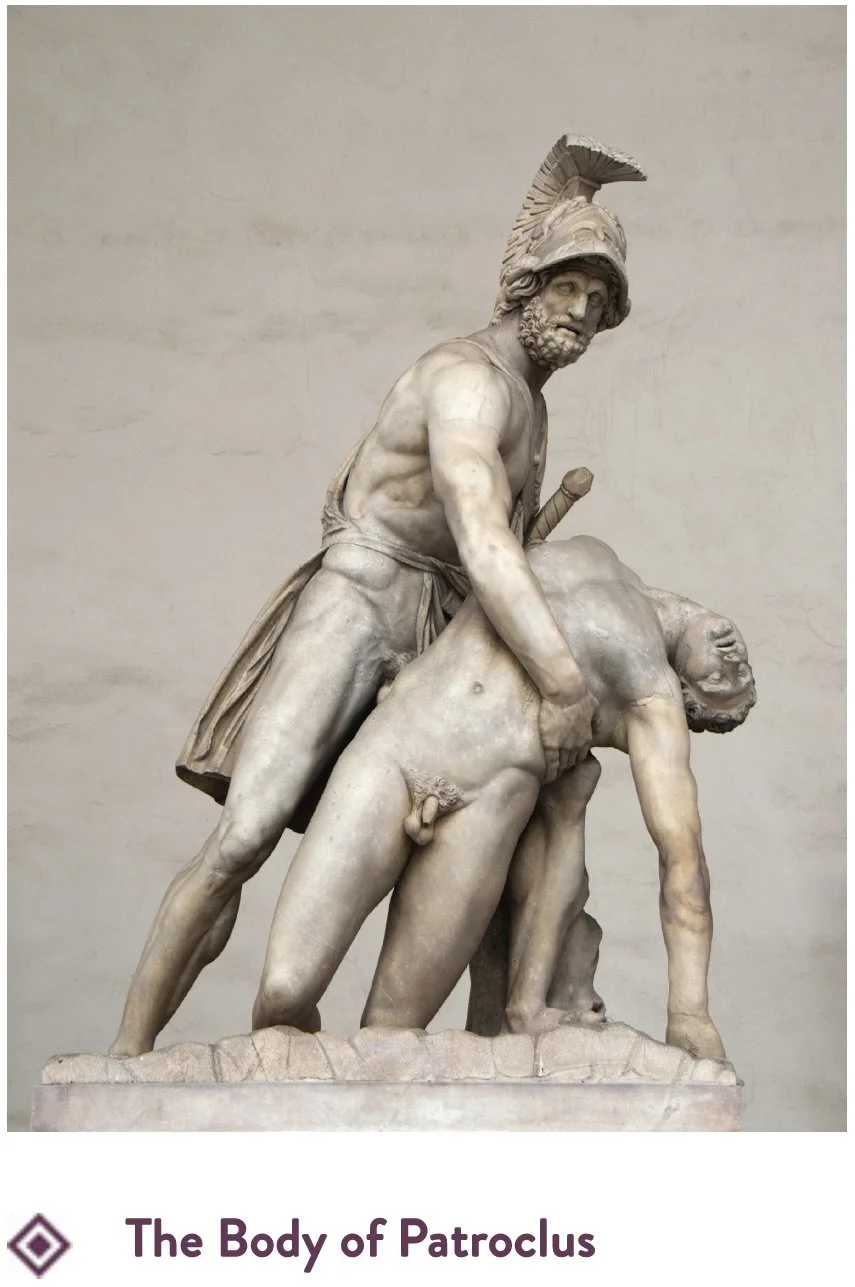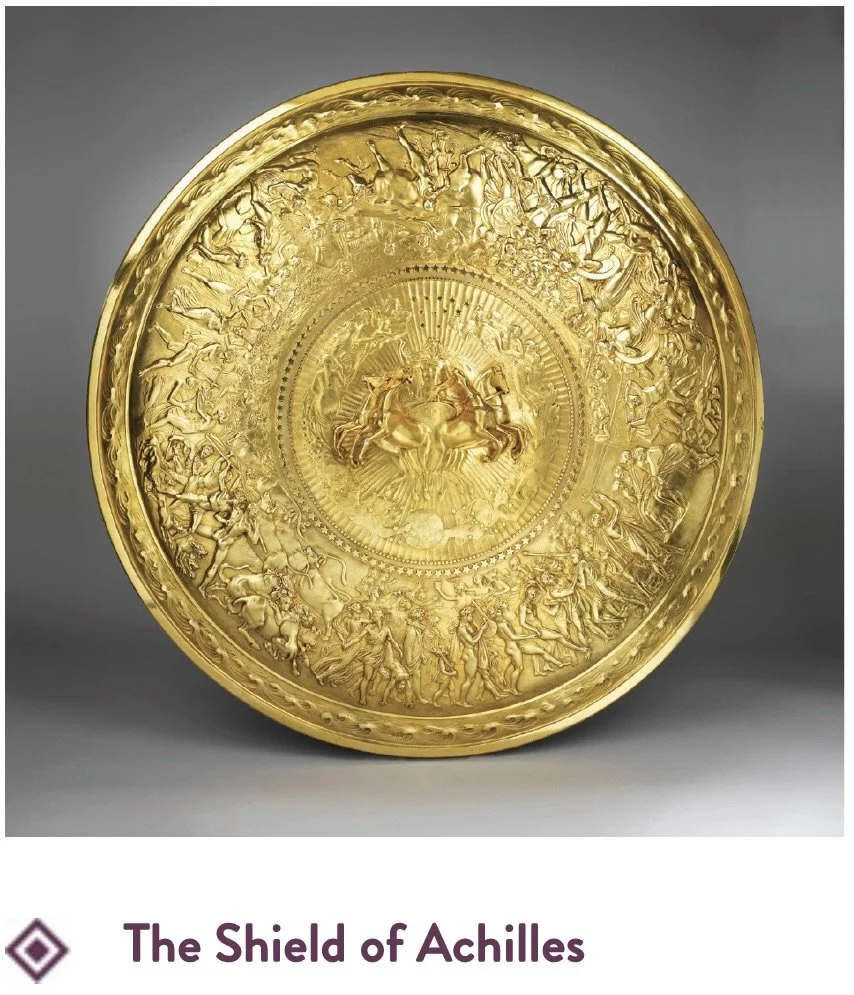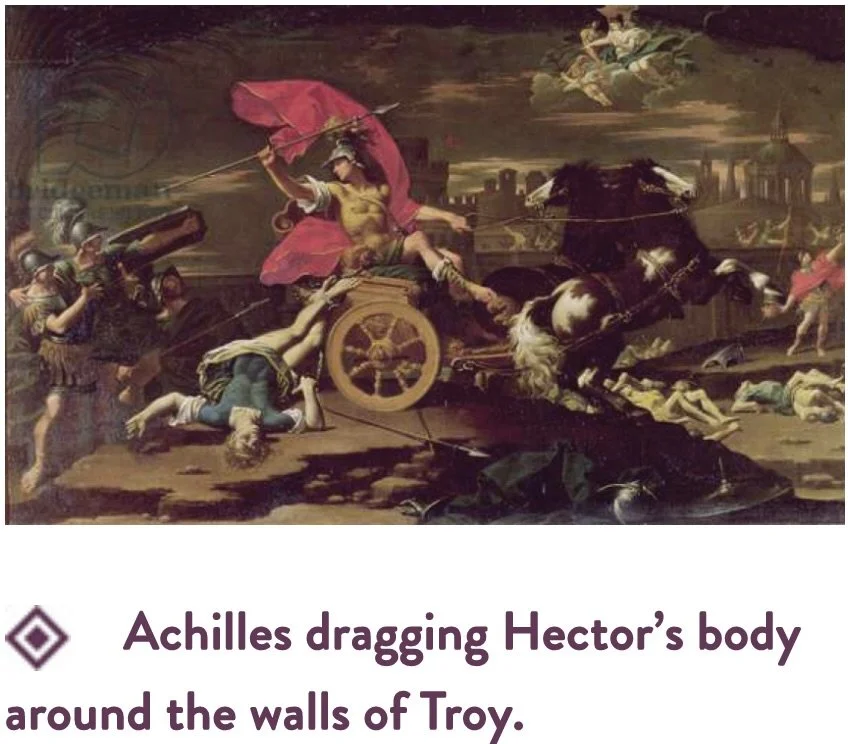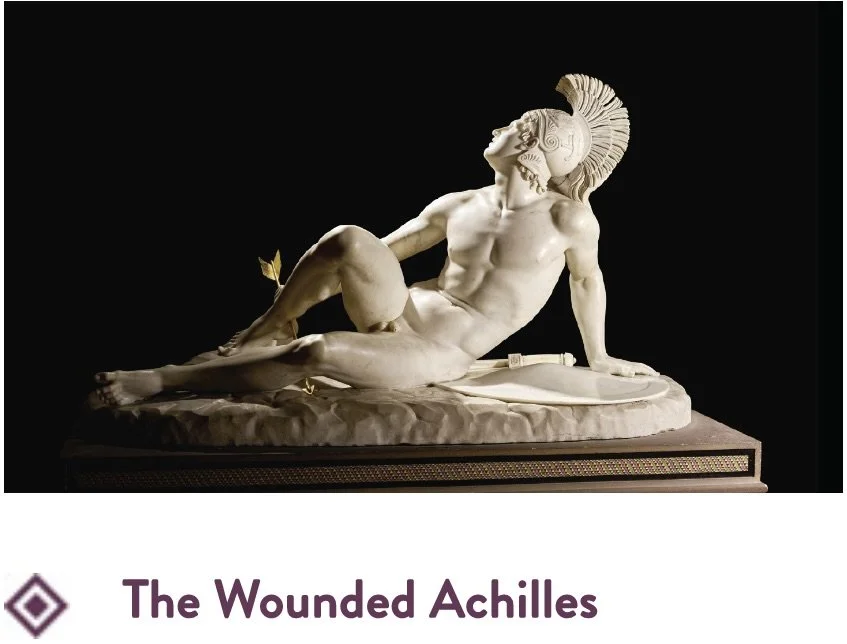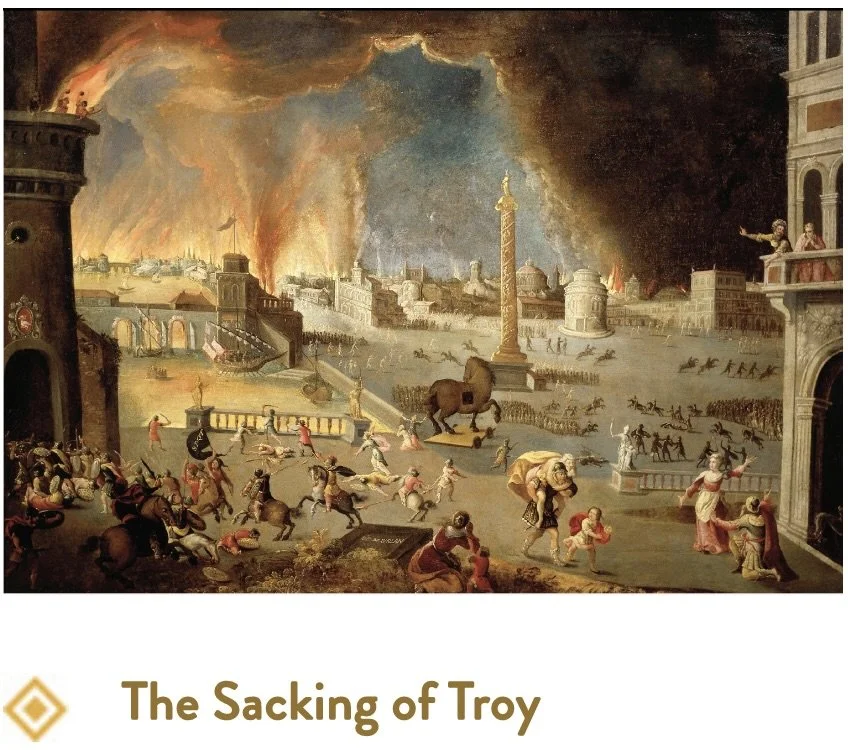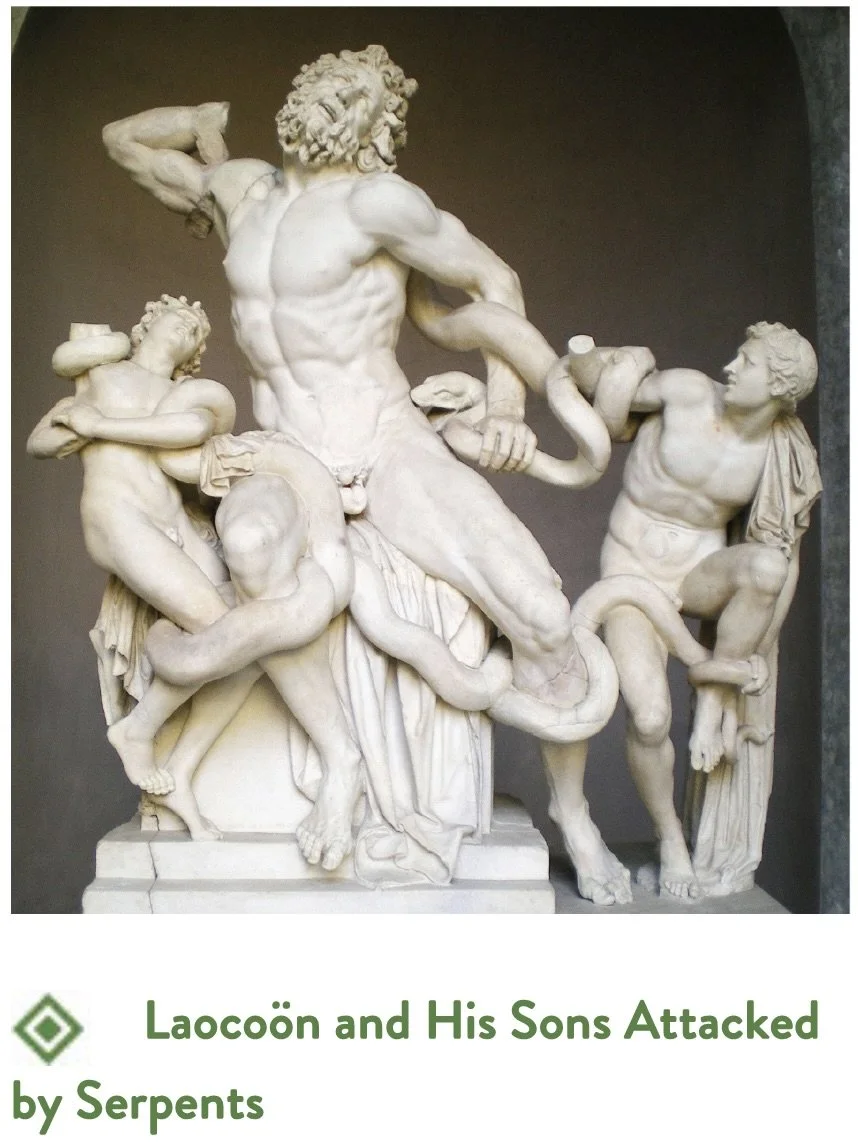Troy by Fry
Ref: Stephen Fry (2021). Troy. Penguin Books.
___________________________________________________________________________
Summary
Troy. The most marvelous kingdom in all the world. The Jewel of the Aegean. Glittering Ilium, the city that rose and fell not once but twice. Gatekeeper of traffic in and out of the barbarous east. Kingdom of gold and horses. Fierce nurse of prophets, princes, heroes, warriors, and poets. Under the protection of ARES, ARTEMIS, APOLLO, and APHRODITE, she stood for years as the paragon of all that can be achieved in the arts of war and peace, trade and treaty, love and art, statecraft, piety, and civil harmony. When she fell, a hole opened in the human world that may never be filled, save in memory. Poets must sing the story over and over again, passing it from generation to generation, lest in losing Troy we lose a part of ourselves.
What we call the Trojan War was fought more than three thousand years ago, around 1200 BCE, by Bronze Age Mediterranean civilizations which had arisen in what we today call Greece and Turkey in about 1550 BCE. In western Greece, on the peninsula of the Peloponnese, flourished the city-state and empire of Mycenae. This was the fabled kingdom of Agamemnon. To the east of the Aegean, on the northwest coast of Asia Minor, stood the city of Troy. The most significant source for our knowledge of the Trojan War is the poet Homer, who lived—if ever he really did live—in the succeeding Iron Age, the better part of five centuries later.
The Iliad begins with rage and ends with sorrow: the rage of Achilles at Agamemnon’s appropriation of the slave girl Briseis and the sorrow of the Trojan people as they mourn the death of their champion Hector.
Quite soon after the supposed time of the Trojan War (some have even suggested as a result of it), the Mycenaean civilization collapsed, and what are known as the Greek “Dark Ages” descended. The most usual explanation for this collapse is a combination of apocalyptic horsemen: namely, some kind of geological or climate catastrophe, a famine, a plague, and the invasion of the Greek and Mediterranean world by the so-called “Sea Peoples.”
There exist History and Prehistory. Put simply, prehistory is what happened in the human world before the development of writing. Prehistory can therefore be studied only by reading not words but objects. This study is archaeology: the analysis and imaginative reconstruction of ancient buildings and their ruins, the excavation and interpretation of artifacts, relics, and remains. History, conversely, is mostly analyzed through documentary records—manuscripts, tablets, inscriptions, and books. Human prehistory is understood to have begun around three and half million years ago, when our hominin ancestors first constructed stone tools whose archaeological traces we can unearth and examine. Anything before that time we call paleontology, where the only indications left behind are fossils.
___________________________________________________________________________
Rise of Troy
Zeus and Electra, daughter of the Titan Atlas and the sea nymph Pleione, bore a son, DARDANUS, who traveled throughout Greece and the islands of the Aegean searching for a place in which he could build and raise his own dynasty. He alighted on the Ionian coast. The kingdoms of Phrygia and Lydia were there, but they were ruled over, so Dardanus settled in the North, occupying the peninsula that lies below the Hellespont. Dardanus established the city of Dardanus, while the kingdom took the name Dardania.
On Dardanus’ death, his eldest son Ilus ruled, but died childless, leaving the throne to his brother, the middle son, ERICHTHONIUS. The reign of Erichthonius was peaceful and prosperous. In the lee of Mount Ida, his lands were fed by the waters of the river gods Simoeis and Scamander, who blessed the land of Dardania with great fertility. Erichthonius grew to become the richest man in the known world, famous for his 3000 mares and their countless foals. Boreas, the North Wind, took the form of a wild stallion and fathered a remarkable race of horses by the fifty foals of Erichthonius’s herd.
After the death of Erichthonius, his son TROS succeeded to the throne. Tros had a daughter, Cleopatra, and three sons, ILUS (after his great-uncle), Assaracus, and GANYMEDE. It was Ganymede’s brother Prince Ilus who founded the new city that would be named Troy in Tros’s honor. He won a wrestling match at the Phrygian Games, the prize consisting of 50 youths and 50 maidens, but—more importantly—a cow. A very special cow that an oracle directed Ilus to use for the founding of a city. “Wherever the cow lies down, there shall you build.” Ilus was content to follow his prize heifer all the way north from Phrygia to the Troad, past the slopes of Mount Ida, and onto the great plain of Dardania; and it was here, not far from where Ilus’s great-grandfather’s first city of Dardanus had been built, that the heifer lay down at last. Ilus knelt down and prayed to the gods for a sign that he had made no mistake. In immediate answer a wooden object fell from the sky- carved into a likeness of PALLAS ATHENA, a spear in one upraised hand and a distaff and spindle in the other, representing the arts of war and the arts of peace. The act of looking at so sacred an object struck Ilus instantly blind. After a week of steadfast devotion, he was rewarded with the restoration of his sight.
Ilus planned the streets so that they radiated like the spokes of a wheel from a central temple which he would dedicate to Athena. In the innermost sanctum of the temple, he placed the wooden carving of Pallas Athena that fell from the sky: the xoanon, the Luck of Troy. They called the wooden carving the Palladium, and after Ilus’s father Tros they gave their city and themselves the new names of Troy and Trojans.
Troy’s Lineage: Zeus- Dardanus- Ilus- Erichthonius (Ilus’ brother)- Tros- Ilus (who founds and names the city Troy after his father, Tros)- Laomedon (killed by Heracles)- Pordarces (‘Priam’).
___________________________________________________________________________
Curse on Troy (Pelops & Hippodamia)
King TANTALUS ruled in Lydia, a kingdom to the south of Troy. Tantalus served up his son PELOPS to the gods in a stew. Young Pelops was reassembled and resurrected by the gods. When Pelops attained manhood, he raised an army and attacked Ilus, but was bested in battle. Pelops left Ionia, settling far to the west, the peninsula off mainland Greece that is called the Peloponnese after him. Here, rose legendary kingdoms and cities as Sparta, Mycenae, Corinth, Epidaurus, Troezen, Argos, and Pisa. This Pisa was a Greek city-state ruled over at the time of Pelops’s arrival by King OENOMAUS, a son of the war god Ares.
Oenomaus had a daughter, HIPPODAMIA, he announced that she could only be won by a man who could defeat him in a chariot race, however the price of losing the race would be the suitor’s life. Pelops, desirous of Hippodamia, called on his one-time lover Poseidon for aid. Poseidon sent him a two-winged steed. To make doubly sure, Pelops bribed Oenomaus’s charioteer MYRTILUS, a son of Hermes, to help him win. Motivated by the promise of half Oenomaus’s kingdom and a night in bed with Hippodamia (with whom he too was in love), Myrtilus replaced the bronze linchpins which fixed the axle of Oenomaus’s chariot with substitutes carved from beeswax.
In the race, Pelops defeated King Oenomaus’ when his waxen linchpins gave way, killing the king when he was dragged to a bloody death under the hoofs of his own horses. Myrtilus went to claim his reward—a night with Hippodamia—but she ran complaining to Pelops, who hurled Myrtilus off a cliff into the sea. As the drowning Myrtilus struggled in the water, he cursed Pelops and all his descendants. The sea in which he fell is called the Myrtoan Sea.
___________________________________________________________________________
1st Destruction of Troy
King Ilus died and the throne of Troy went to his son LAOMEDON, who added protective walls and ramparts, golden towers and turrets, and endless splendor. Laomedon commissioned Apollo and Poseidon to do the work, but denied them payment for their work. Angered, Apollo shot plague arrows into the city while Poseidon sent a huge sea monster to the Hellespont.
To stop the sea monster and the plague, Laomedon was told to sacrifice his daughter Hesione to the sea creature. She was chained to a rock in the Hellespont. Heracles and his band decided to rest in Troy on their return trip from his 9th labor. Heracles agreed to kill the beast in exchange for his horses. He killed the sea monster, saved Hesione, and was denied the horses by Laomedon.
Heracles completed his 12 labors, raised a volunteer army and sailed a flotilla of 18 penteconters (fifty-oared vessels), across the Aegean to the port of Ilium. He left Oicles in charge of the ships and reserve troops and set out with Telamon and the larger part of his army to confront Laomedon.
Laomedon managed to outmaneuver Heracles, leaving the city of Troy and wheeling round behind to attack Oicles and the ships. By the time Heracles had discovered what was happening, Oicles and the reserves had all been killed and Laomedon’s forces were safely back behind the walls of Troy, preparing themselves for a long siege. Telamon broke through one of the gates and the Greeks took the city. Heracles, a little behind, heard his men cheering Telamon. “Hail Telamon, our general!” This was more than Heracles could bear. Roaring in fury, he stormed through to find and kill Telamon. Knowing his friend and the terrifying effects of his jealous rages, Telamon immediately set about gathering stones and built an altar to Heracles.
The slaughter that followed was terrible. Laomedon, his wife, and all their sons, except for Pordarces, who’s freedom Hesione bought, were killed. Telamon returned to Salamis with his bride Hesione and Pordarces was left in Troy. Heracles and his forces left Troy a ruin. The ships of the Trojan navy were commandeered and loaded with all the treasure the Greeks could fit into the holds.
The Trojan people called Pordarces “the one who was bought” which means “Priam” in the Trojan language. In time, this became his name.
___________________________________________________________________________
Telamon & Peleus
Telamon and his brother PELEUS grew up on the island of Aegina, a prosperous naval and commercial power situated in the Saronic Gulf, the bay that lies between the Argolid to the west and Attica, Athens, and mainland Greece to the east. Their mother was Endeis, a daughter of Chiron, and their father was AEACUS, the island’s founder king, was a son of Zeus and Aegina, a water nymph who gave the island its name.
King Aeacus turned away from Endeis and consorted with the sea nymph Psamathe, who presented him with a son, PHOCUS. King Aeacus doted on his youngest child, the “consolation for my old age” as he lovingly called him. Endeis could not abide the role of neglected first wife and became consumed by a jealous hatred of Psamathe and her child, jealousy shared by the boy’s half-brothers, Telamon and Peleus, now in their early twenties.
While training one day, Phocus was inadvertently killed by Peleus. The brothers confessed their crime, and were banished from the kingdom.
Telamon
Telamon went to the island of Salamis, ruled over by King CYCHREUS, whose mother, the sea nymph Salamis, gave the island its name. Cychreus took a liking to Telamon and cleansed him of his abominable blood crime of fratricide. This done, he appointed Telamon his heir, giving him his daughter Glauce’s hand in marriage. In due course Glauce presented her husband with a baby son of magnificent size, whom they named AJAX.
Following the 1st destruction of Troy with Heracles, Telamon returned to Salamis with Hesione, by whom he had another son, TEUCER.
Peleus
Peleus’s father Aeacus was the son of Zeus and the sea nymph Aegina. HERA, as ever ragingly jealous of her husband’s affairs, had waited until Aeacus grew to manhood before sending a plague to the island which wiped out the human population, all but Aeacus. Aeacus, alone and surrounded by ants, preyed to Zeus- “only let there be as many mortals to keep me company on this island as there are ants.” Zeus transformed the ants into people, whom Aeacus called the Myrmidons after myrmex (Greek for ant). In time, most of the Myrmidons left Aegina and made their home in Phthia. So, Peleus chose Phthia as a place for exile and expiation: to be with the Myrmidons.
EURYTION, Phthia’s king, welcomed Peleus and cleansed him of his crime, appointed him heir, and gave him his daughter, Antigone, in marriage; the two had a girl, Polydora.
Peleus joined in the Calydonian hunt with Acastus and Atalanta and, in the heat of the chase, accidentally speared and fatally wounded his father-in-law Eurytion. This was a blood crime and Peleus made his way to Acastus for expiation in the Aeolian kingdom of Iolcos.
Acastus’s wife ASTYDAMEIA found herself overcome by desire for Peleus, but was rejected by Peleus. Hot with mortification, Astydameia sent a message to Peleus’s wife Antigone, who was home in Phthia raising their daughter Polydora. Peleus wife Antigone heard this message and hung herself. Astydameia continued the lie to Acastus, who was determined to ensure the death of Peleus. On a hunt, Acastus took the sword of the sleeping Peleus, leaving him unarmed. A herd of wild centaurs on the fringe of the wood sniffed the air and detected the scent of a Peleus. With them was Chiron, who awoke Peleus, recovered his sword, and told him he had been wronged.
Peleus learned from Chiron what Astydameia had done and wept for the loss of Antigone and with rage at the injustice. He went back to Phthia, erected a tomb for his dead wife, and returned to Iolcos with an army of his best Phthian soldiers—the elite Myrmidons. Acastus was killed, the wicked Astydameia cut into pieces, and Thessalus—the son of Peleus’s old friend Jason—installed on the throne. From that point on, Aeolia became known as Thessaly.
Rather than return to Phthia and live the life of a prince and heir, Peleus accepted an offer from Chiron to spend time with him in his mountain cave.
___________________________________________________________________________
Peleus & Thetis
Prometheus foretold that any son born of the Nereid Thetis would grow up to be greater than his father. Despite her beauty, this kept the Olympian gods away from Thetis. Chiron told Peleus that Thetis would “only yield to one who can hold her fast no matter how many alterations to her form she makes.” Peleus stood on the shore of the Aegean and called for Thetis, holding her until she was drained of her energy and yielded.
Peleus was married to Thetis by Chiron in his cave on Mount Pelion. Every Olympian god, the demigods, and minor deities joined (the last great gathering of the immortals the world would know). During the ceremony, Eris, the goddess of strife, feuding, discord, and disarray, walked in and rolled a golden apple to the feet of Zeus that said, simply, “To the fairest.” Uncertain who to give the apple to, Hermes called in Paris (the unwitting Prince of Troy), who gave the apple to Aphrodite after being promised Hellen.
___________________________________________________________________________
Paris the Herdsmen
Trojan King Pordarces- Priam with his queen Hecuba, grew Troy into the Jewel of the Aegean, the greatest city in the world. They gave birth to a son and heir, Prince Hector. Hecuba, pregnant again, was informed by their seer, Aesacus, that “your baby will be the death of us all, the cause of the complete destruction of our city and our whole civilization- for it is certain that it will be a male child—then Troy will burn to the ground, never to rise again.”
Worried by the prophecy, Aesacus left Troy to be with his wife Hesperia, daughter of the river god Cebren. Aesacus never returned to Troy. Shortly after, Hesperia died from a snakebite. Aesacus was so desolated that he threw himself from a cliff into the sea. The ancient goddess Tethys took pity on him and transformed him into a seabird. A bird that in its grief would dive and dive into the depths, repeating its suicide forever.
Hecuba gave birth to the child and the King and Queen called in their royal family’s chief herdsman, Agelaus from Mt Ida, to kill the child quickly. Agelaus couldn’t do it and raised the child as his own, carrying him around in a “little backpack.” The Greek for backpack is pera and the boy’s name became Paris.
Before long, Paris met and fell in love with the oread, or mountain nymph, OENONE, a daughter of the river god Cebren. They married and gave birth to a child. Paris, a strong herdsman, boasted about his prize bull. He was visited by Ares and Hermes, who dressed Ares as a bull, and asked Paris if he was greater. Paris acceded and Hermes saw him as a truthful mortal, later asking him to judge “who was the fairest” at Peleus’ and Thetis wedding.
___________________________________________________________________________
Atreus & Thyestes
Pelops, having killed Oenomaus and won Hippodamia, ruled in Elis, and established there, in the kingdom of Olympia, a four-yearly cycle of athletic contests (which continue as the Olympic Games). He and Hippodamia had two sons, ATREUS and THYESTES. By the nymph Axioche, Pelops also fathered another boy, CHRYSIPPUS. Prince LAIUS of Thebes, who had been given refuge in Elis from the internecine violence that was raging in his home city, fell in love with the beautiful Chrysippus and abducted him, thus earning the curse that was to ruin the house of Laius and Laius’s son Oedipus and their descendants. Pelops sent his two sons, Atreus and Thyestes, to rescue Chrysippus. Instead, they killed him before fleeing to Mycenae in search of expiation.
In Mycenae, Atreus and Thyestes deposed King Eurystheus and, each vying for the throne, betrayed each other. Thyestes stole away Atreus’s wife Aerope. In retaliation Atreus served up Thyestes’s own sons to him in a feast. Thyestes was told by an oracle that the only way he could revenge himself on his brother Atreus for this crime would be by fathering a son by his own daughter—a son who would grow up to kill Atreus. So, Thyestes bed his daughter Pelopia, who duly bore him a son, AEGISTHUS.
Pelopia was so ashamed of the incest that, as soon as Aegisthus was born, she abandoned him deep in the countryside. In traditional fashion the baby was found by a shepherd, and, in a somehow inevitable twist of fate, the shepherd took the baby to its uncle, King Atreus, who—unaware that the child was his brother Thyestes’s son and prophesized to slay him—adopted Aegisthus and raised him along with his own three children by Aerope: their two sons AGAMEMNON and MENELAUS, and daughter Anaxibia.
When Aegisthus had grown to manhood, his “uncle” Thyestes revealed to him that he was in fact his son (and grandson) and that he had been born to be an instrument of vengeance. Aegisthus, rather than being horrified to discover that he was the offspring of so noxious a union, obliged his father/grandfather Thyestes and slew Atreus, whose sons Agamemnon and Menelaus fled Mycenae, leaving it under the control of Thyestes and Aegisthus.
Agamemnon and Menelaus went South to the kingdom of Laconia (or Lacedaemon) where they were welcomed by Sparta’s King Tyndareus, who was married to Leda, a princess from the kingdom of Aetolia, on the Gulf of Corinth’s northern side.
Lacedaemon was a son of Zeus, and an ancient King of Laconia. He renamed the realm after Sparta, his wife (and niece). The Spartan people in classical times were known for their terseness and directness of speech.
___________________________________________________________________________
Helen
One afternoon Tyndareus and Leda made love by a river. When Tyndareus left her to wash, Leda was visited by Zeus in the form of a great white swan who forced himself on her. Leda laid two eggs, each of which contained a set of twins- one by Tyndareus and another by Zeus (heteropaternal superfecundation). From one egg came a girl and boy whom they named CLYTEMNESTRA and CASTOR, from the other a girl and boy whom they named Helen and POLYDEUCES (also known as Pollux). Tradition has it that Zeus was the father of Polydeuces and Helen, and Tyndareus of Clytemnestra and Castor.
Helen was raised by Leda and Tyndareus as their own, along with her sister Clytemnestra and their brothers Castor and Polydeuces. She was only 12 yo when Theseus, King of Athens, with his friend PIRITHOUS, kidnapped her and took her to Aphidna, 1 of 12 Towns of Attica. Leaving Helen in the charge of the town’s ruler, Aphidnus, and his own mother, Aethra, Theseus went down into the realm of the dead with Pirithous to help realize his friend’s scheme to abduct Persephone. While they were trapped there, Helen was rescued by the DIOSCURI (her brothers Castor and Polydeuces), and restored to her family in Sparta. She had come to rely on Aethra, so the older woman accompanied her, not as her keeper now, but as her slave woman.
Her mother Leda and her father Tyndareus (her mortal father) found that every unmarried king, prince, and warlord in the Peloponnese, and a good many from the mainland were lining up for her hand in marriage. These included Atreus’s sons Agamemnon and Menelaus, Ajax of Salamis and his half-brother Teucer, DIOMEDES of Argos, IDOMENEUS, King of Crete, Menestheus, King of Athens, Prince PATROCLUS, heir to the throne of Opus (a kingdom on the east coast of mainland Greece), PHILOCTETES of Meliboea, IOLAUS and his brother Iphiclus, rulers of the Thessalian Phylaceans, and many other clan chiefs, elders, princelings, minor nobles, and landowners.
Odysseus’s father was the Argonaut LAERTES, ruler of Cephalonia and its outlying islands in the Ionian Sea. Odysseus’s mother ANTICLEA was a granddaughter of Hermes by way of AUTOLYCUS. Laertes had given his son Odysseus rule in Ithaca, one of the islands in the Cephalonian archipelago over which Laertes held sway.
Tyndareus, uncertain who to wed Helen to, sought Odysseus’ help. Odysseus agreed to help in exchange for marriage to Tyndareus’ brother Icarius daughter Penelope. Tyndareus agreed and Odysseus instructed him to “settle the issue by lottery with the price being an oath that applicants for the hand of Helen will only be allowed to draw their lots if first they swear by all the gods of Olympus and on the lives of their children and grandchildren that, no matter who wins, they will abide uncomplainingly by the result. Furthermore, they pledged themselves to defend Helen and her lawfully recognized husband from all who might come between them.” Suitors fell one by one to their knees and swore, before the gods and upon their honor, to protect and defend whichever of their number drew the winning ticket. The winner of the draw was Prince Menelaus.
Agamemnon, sad at the result, was nudged on by Odysseus to marry Helen’s sister Clytemnestra.
Helen and Menelaus were blessed with a daughter, HERMIONE, and a son, NICOSTRATUS. Helen was attended by her bondswoman, Theseus’s mother Aethra.
___________________________________________________________________________
Agamemnon & Menelaus
Tyndareus abdicated the throne of Sparta in favor of his new son-in-law Menelaus.
Agamemnon raised an army to invade Mycenae and, as he had assured Tyndareus and Odysseus he would, drove his cousin Aegisthus and uncle Thyestes from the kingdom, installed himself on the throne with Clytemnestra as his queen. Thyestes died in exile on Cythera, the small island off the southern tip of the Peloponnese. His ruthless generalship and natural leadership earned him the soubriquet Anax andron, “King of Men.” Under his rule Mycenae rose to become the richest and most powerful of all the Greek kingdoms.
Agamemnon ruled in Mycenae with his young wife Clytemnestra. She bore him three daughters, IPHIGENIA, Electra, and Chrysothemis, and a son, Orestes.
___________________________________________________________________________
Achilles
The prophecy that any son of Peleus and Thetis would eclipse his father could not be realized as their first six baby boys died in early infancy. Desperate, Thetis sought wisdom from her father, the sea god Nereus. Nereus instructed her to ensure the baby was invulnerable before making him immortal. Thus, the baby must be dipped in the river Styx (invulnerability) fully before being covered in ambrosia and held over a fire (immortality).
Thetis gave birth to her 7th child, Ligyron, brought him to the river Styx and dipped him in while holding his left ankle. She covered him in ambrosia, and as she went to burn him was confronted by Peleus, who reached into the hearth and snatched the child from the fire. He was horrified at Thetis and cursed her to depart. She had failed to complete the process of immortalizing her son. Ligyron would die, like all humans.
Peleus took the young Ligyron (“wailing and whining”) to Chiron’s cave. Renamed Achilles, he spent the first part of his upbringing learning music, rhetoric, poetry, history, and science, and later, when he was deemed old enough, in his father’s palace in Phthia. At 10 yo and newly transferred from Chiron’s cave to the Phthian royal court, King Menoetius and Queen Polymele of the nearby kingdom of Opus sent a message to Peleus. Polymele was Peleus’s sister and Menoetius had been a fellow Argonaut back in the days of the quest for the Golden Fleece. They asked Peleus if he might take in their son Patroclus, who had accidentally killed a child in a fit of rage, and must now grow up exiled from Opus to atone for his crime. Achilles and Patroclus grew up as cousins and friends.
___________________________________________________________________________
Paris the Prince
In Troy, Hecuba and Priam had more children including sons DEIPHOBUS, HELENUS, and TROILUS, and the daughters Iliona, CASSANDRA, Laodice, and POLYXENA. Their eldest boy, Prince Hector, married the Cilician princess ANDROMACHE. Paris (still an unknown herdsmen) married Oenone, they had a son, Corythus. Paris declined to tell Oenone about his dream of the apple and Helen.
Priam held an annual festival to commemorate the “death” of his son Paris. The festival included animal sacrifices and the soldiers of Priam demanded the prize bull of Paris as tribute. Paris decided to join the games to win back his animal. Despite his promise to Agelaus never to go to Troy, Paris attended the games on the plain of Ilium between the river Scamander and the city walls. He triumphed in each event as it came, much to the amusement of the crowd, who instantly took to this unknown, but wildly good-looking and boyishly eager, competitor. The only two in the field who came close to threatening his lead were the two royal princes- Hector and Deiphobus.
Deiphobus, upset that Paris beats him in wrestling, chased him into the city. As he was confronted by Hector, Deiphobus, and a crowd, Agelaus commands Deiphobus not to hurt Paris, who was his brother. Agelaus told Priam and Hecuba that he couldn’t kill the boy. Paris was taken in as Prince of Troy.
Cassandra, who had been raped Apollo was given the gift of prophecy with the caveat that no one would heed her words. She screamed to take Paris away from the city- “he will bring destruction to us all!”
Paris’s true identity became known and he moved into the palace, he called for his friend to join him. Just as Agelaus had revealed Paris’s identity as a prince of Troy, so Anchises came forward to declare himself Aeneas’s father. The disagreement with Priam that had led to Anchises leaving Troy was forgotten and Aeneas was welcomed into the palace as Paris’s companion and a valued prince of the blood royal in his own right.
___________________________________________________________________________
Aeneas
The goddess of love, a daughter of the primordial sky god Ouranos—and therefore of an older generation than Zeus and the other Olympians—Aphrodite spent most of her time on her home islands of Cyprus and Cythera.
Zeus looked down on Mount Ida, searching for a randomly ordinary mortal. His eye fell on a herdsman lying asleep on a grassy bank: a blameless fellow by the name of ANCHISES. Zeus instructed him to “go to the palace of Eros. Find a way to steal one of his arrows. Then make your way east to the Troad.”
On the road, Hermes urged Anchises forward to claim the love of Aphrodite, who immediately fell in love with Anchises after being shot by an arrow of Eros. Despite his apparently lowly position herding cattle, Anchises was of royal birth—a cousin of King Priam’s.
Anchises and Aphrodite bore a son, AENEAS; like Paris, the boy grew up as a herdsman on the slopes of Mount Ida; and, also like Paris, he was all the time without knowing it a member of the Trojan royal family.
___________________________________________________________________________
Paris & Helen
Paris requested an embassy of Priam to go to Telamon to see if they would be willing to let Hesione return home. Paris appointed his friend Aeneas as the legation’s second-in-command. Once out to sea, Paris let Aeneas and the crew know they were sailing for Sparta.
In Sparta, King Menelaus welcomed Paris, Aeneas, and the deputation from Troy. On the 9th day, the Dioscuri, Helen’s brothers Castor and Polydeuces, left for Arcadia on quick notice. The next day a message came for Menelaus- he was wanted for the funeral of his grandfather CATREUS on Crete. Suspecting nothing, he departed.
With Menelaus, Castor, and Polydeuces gone, Paris and his retinue looted the palace and abducted Helen, her son Nicostratus, and her enslaved attendant, Theseus’s mother Aethra, but they left her daughter Hermione behind.
On his voyage back home to Troy, Paris stopped off at Cyprus, Egypt, and Phoenicia, where King Sidon entertained him hospitably and for his trouble was murdered. Paris ransacked the Phoenician treasury and sailed for Troy with his ships laden.
Priam, Hecuba, Deiphobus, Hector, and all the rest of the royal family of Troy were astonished to see Helen, but they were delighted by her sweetness and entranced by the treasure ships containing the riches of Sparta and Phoenicia.
___________________________________________________________________________
Outset of the Trojan War
Odysseus rules Ithaca with his wife Penelope.
Telamon rules Salamis with his wife Hesione and their son’s Teucer and Ajax (by Glauce).
Agamemnon rules Mycenae (the Argolid) with his wife Clytemnestra and daughters IPHIGENIA, Electra, and Chrysothemis, and son, Orestes.
Menelaus rules Sparta with his wife Helen.
Priam rules Troy with his wife Hecuba and sons Hector, Paris, Deiphobus, Helenus, and Troilus, and daughters Iliona, Cassandra, Laodice, and Polyxena.
___________________________________________________________________________
Sparta’s Response
A great horn, metaphorical not real, was sounded around the kingdoms, provinces, and islands of Greece. The kings, warlords, clan chiefs, princelings, generals, nobles, landowners and hangdog hopefuls who had gathered in Sparta for Helen’s hand and sworn to defend and honor her marriage were now called upon to make good their pledge.
The coalition arrayed against the Trojans were called “the Achaeans,” named for Achaea, a region in the N. central Peloponnese that was part of Agamemnon’s combined lands of Corinth, Mycenae, and Argos, but which was used to denote the whole peninsula, including city-states of the southern Peloponnese like Sparta and Troezen. They also came from Athens and Attica in the SE of the mainland and Thessaly in the NE, from the Ionian islands and from Crete, Salamis, and the Aegean islands comprising the Sporades, Cyclades, and Dodecanese. They urged each king to bring as many ships and men as they could muster and to gather at the Theban port of Aulis on the coast of Boeotia which looked east over Euboea across the Aegean to Troy. Idomeneus, King of Crete, grandson of the great Minos, arrived with 80 ships—as many as Diomedes’s Argive contribution. Only NESTOR of Pylos and Agamemnon himself, with 90 and 100 ships respectively, provided more.
Agamemnon’s seer Calchas envisoned a message from Apollo- “The snake has consumed nine birds. This is a sign that for nine years we will besiege Troy, winning only in the tenth.”
___________________________________________________________________________
Palamedes & Odysseus
An oracle prophesized that “if Odysseus leaves Ithaca to fight in a war, he will not return for 20 yrs.” Due to this, Odysseus and his Ithacans failed to sail so Agamemnon dispatched Palamedes to find him. Palamedes and Odysseus had never gotten along as Odysseus was descended from Autolycus and Sisyphus while Palamedes was a grandson of Poseidon and on his mother’s a great-grandson of King Minos of Crete, and therefore a great-great grandson of Zeus himself. When Palamedes disembarked on Ithaca, he found Odysseus naked sewing the soil in an apparent craze. Palamedes took Telemachus, the baby of Odysseus and Penelope, and placed it in the path of Odysseus’ cart and Odysseus immediately dropped the plow’s handles and rescued the baby, thereby proving to Palamedes that Odysseus was fit for war.
Odysseus sailed from Ithaca with 228 soldiers aboard 12 penteconters. On the way to join Agamemnon, Odysseus stopped off at Cyprus to secure the alliance of King CINYRAS, who had promised to provide a fleet of 50. It was something of a disappointment when his son Mygdalion arrived at Aulis with only the single vessel that he commanded.
___________________________________________________________________________
Achilles
Agamemnon summoned Odysseus and Diomedes to find Achilles.
Previously, Thetis had gone back to Peleus to explain to him the immortality process she was conferring on Achilles after birth. She explained that “Achilles has two futures. One is a life of serene happiness, a long life blessed with children, pleasure, and tranquility. But a life lived in obscurity. His name will die with him. The other life is a blaze of glory such as the world has not seen. A life of heroism, valor, and achievement that outshines Heracles, Theseus, Jason, Atalanta, Bellerophon, Perseus . . . every hero that ever lived. Eternal fame and honor. A life sung by poets and bards for eternity. But a short life.” Understanding, Peleus agreed that Thetis would hide Achilles. He left Patroclus in charge of the Myrmidons and she took him to the island of Skyros, whose ruler LYCOMEDES was an old friend (he was the king that had killed Theseus). Lycomedes dressed Achilles as a girl and left him in the company of his 11 daughters. During his time there, Achilles fathered a child with Deidamia whom they named Pyrrhus (‘girl of flame’- on account of the red-gold hair).
Odysseus and Diomedes made their way to Skyros where they tricked Achilles into revealing himself. Achilles joined the Achaean force with Patroclus and his Myrmidons.
___________________________________________________________________________
Iphigenia & the Wind
The fleet was arrayed at Aulis, but the wind would not blow. Agamemnon sought the wisdom of Calchas, who told him that Agamemnon had inadvertently shot a sacred stag of Artemis and that only the life of his eldest daughter Iphigenia would propitiate him of his crime. Agamemnon, not wanting to sacrifice his daughter, attempted to wait out the wind. As they waited, disease spread amongst the arrayed fighting forces.
Seeing no other alternative, Agamemnon directed Odysseus to sail for Mycenae and return Iphigenia and her mother Clytemnestra under the guise of a royal wedding to Achilles. The two returned at once and immediately were told the real reason for their return. Iphigenia eventually broke the deadlock- “I will lie on the sacrificial stone and gladly give my life for Greece.” As Calchas brought the knife down, Iphigenia disappeared and was replaced by a stag. Almost at once, the West wind, Zephyrus, blew.
___________________________________________________________________________
Achaean Forces
There was at least an 8-yr gap between the abduction of Helen and the final sailing of the fleet.
Homer estimates something around 1190 ships with ~142,320 fighting men.
The great Achaean expeditionary force consisted of an unprecedentedly vast fleet carrying warriors drawn from dozens of kingdoms and provinces under the command of the alliance’s High King, Agamemnon of Mycenae.
Most agree that the total number of fighting men was somewhere between 70,000 and 130,000.
___________________________________________________________________________
Tenedos
The Achaean fleet sailed from Aulis to Tenedos before landing at Troy.
In Tenedos, Achilles killed Tenes, son of Apollo, and ruler of the island.
A royal party set out from Tenedos to Chryse to offer a sacrifice there to Heracles, who had himself burned offerings to the gods on the island before his attack on Laomedon of Troy. They were led there by Philoctetes, son of King Poeas of Meliboea, who had lit the funeral pyre that ended Heracles life and had been gifted his bow and legendary arrows. While leading Agamemnon and others to the site, he had the ill luck to tread on a viper. The Atreides decreed that Philoctetes should be left behind.
Philoctetes was abandoned on the neighboring isle of Lemnos which, at this time, was deserted. Command of his seven ships, with their complement of 350 oarsmen-archers, was given to Medon, a half-brother of Aias, Ajax the Lesser. Philoctetes was to remain on Lemnos, suffering from the agony of a wound that refused to heal and living off the flesh of such birds and animals as he could shoot with his bow and venomous arrows, for the next 10 yrs.
___________________________________________________________________________
Ilium
The Achaeans were supported by Hera, Athena, Hermes, Poseidon, Hephaestus, and Thetis.
The Trojans were supported by Artemis, Apollo, Leto, Ares, and Aphrodite.
Zeus feigned neutrality while Hades didn’t care.
Demeter and Hestia, goddesses of fertility and the hearth, are the two Olympians with the least interest in or connection to warfare of any kind. Their concern is with the women and children left at home, with the grieving families, and with the workers and slaves who labor in the fields and vineyards, with those—as a phrase from our time has it—who keep the home fires burning.
___________________________________________________________________________
Trojan Forces
The Trojan alliance was made up of almost as many disparate elements as the Achaean. Hector and Priam cemented a coalition of forces from the neighboring states of the Troad and beyond, from as far north as Macedonian Paeonia and Thrace (today’s Bulgaria) to as far south as continental Africa. Prince Aeneas led the Dardanian allies; MEMNON of Ethiopia, Zeus’s son SARPEDON of Lycia, and PENTHESILEA, Queen of the Amazons, fight for the Trojans too.
Modern philology proposes that the Trojans spoke a Hittite language called Luwian.
___________________________________________________________________________
Embassy
Nestor convinced Agamemnon that before he committed to an all-out attack, it would be prudent for the fleet to lay off at some distance and send forward a single ship with an embassy to King Priam, offering him a final chance to return Helen.
Odysseus, Menelaus, and Palamedes, attended by pages, sailed with the white flag of Eirene- goddess of peace, and came ashore in a small tender, where they were met by Antenor. Under protective guard, the party made their way across the plain of Ilium, over the River Scamander, through the high Scaean Gate, and into the city, where they were led to Priam’s palace.
Priam asked Helen- “Is it truly your wish to stay?” “Paris is my husband and this is my home.” “No part of you would rather go back to Sparta with Menelaus?” “Not the smallest part of me.”
While there to negotiate, Paris gave money to Antimachus to “persuade the negotiators to stop their ears to Achaean lies and false promises. And there is more gold than you have ever seen or dreamed of if the Achaean dogs now asleep in Antenor’s house never make it back to their ship alive.” Antenor’s spies had followed Paris all the way to Antimachus’s house and overheard every word of his plot against the Greek legation. “I am ashamed of my own people,” he said, hurrying Menelaus and the others into his hallway. Word of Paris’s secret plot spread from ship to ship like wildfire, filling every Achaean heart with fury.
___________________________________________________________________________
Battle Begins
The Achaeans landed their vessels with Achilles and his Myrmidons near the lead. It had been foretold that the first man to step down onto Trojan soil would be killed and Iolaus, leader of the Phylacean contingent was the first on the sand. “Hellas! Hellas! Greece! Greece!” They streamed up the dunes and followed Iolaus onto the plain. The war had begun.
Hector led the Trojans out of the city, over the bridges that spanned the Scamander and toward the invading Greeks. Hector slew Iolaus (Iolaus was then ever after known as PROTESILAUS—“the first to step forward).” His brother Podarces took over command of the 40 ships that the Phylaceans had brought to the alliance.
A Trojan named Cycnus, son of Poseidon emerged as the most fearsome warrior of the day, until Achilles killed him. While for the most part Poseidon favored the Achaean cause, Cycnus had been his son, and he transformed him into white swan which rose up high above the battlefield and flew away, westward. The Trojans took this for a sign and turned and ran for the sanctuary of their city.
___________________________________________________________________________
Battle Lines Harden
The Achaean fleet was dispersed to protect it from fire, guard was set on each vessel, and a defensive stockade was built around a secure encampment on the beach.
Troy’s already mighty walls had been reinforced and a network of secret tunnels and inland waterways dug. Seaports and trading stations could be reached by river as well as by tunnel. The city was in no danger of being starved into submission. Watchers on the ramparts had a full 360-degree field of vision from which to survey the land around and warn of incoming hostile troops.
___________________________________________________________________________
Stalemate
Agamemnon and his generals soon realized that Troy was too big to encircle in a siege and the Trojans too wise to be coaxed out for one great decisive battle. Months went by. The passing of the first year was marked with songs, sacrifices, and games. Then another year was over. And another. The period of stalemate, from Protesilaus planting his feet on Trojan soil to the full engagement of the armies, lasted an extraordinary nine years.
The city of Troy itself might have been unassailable, but there was nothing to stop Achilles, Diomedes, Odysseus, Ajax, Menelaus, and the others from leading war parties to raid, scavenge, and maraud the countryside around. Wine, grain, livestock, slave women—all were fair game, all could help feed the great encampment. These raids were the specialty of the Myrmidons. Homer relates that under Achilles’s relentless and ruthless direction they sacked more than twenty cities and coastal towns over the course of the nine years.
___________________________________________________________________________
Palamedes
Agamemnon sent Odysseus north to Thrace under instructions to return with as much grain as his ship could carry. When he returned with nothing more than a pitiful quantity of olive oil and sour wine, Palamedes had mocked him in front of his own men. Much to Odysseus’s chagrin, Palamedes sailed off in a ship of his own and, in a few weeks, returned, loaded to the gunwales with fine- quality grain and fruit.
One evening a group of Mycenaeans came to Agamemnon. A dead Trojan spy had been found in the Greek camp. His body had been searched and a note found, apparently from King Priam to Palamedes. “The information you have shared with us has been priceless to Troy’s cause. The gold we sent you is but a small measure of our gratitude.”
Palamedes headquarters was searched and a large hoard of Trojan gold was found. Although innocent, Palamedes was stoned to death publicly. Odysseus had surely been the spider at the center of the whole ugly web of conspiracy. He had never forgiven Palamedes for exposing his feeble pretense of insanity on Ithaca.
___________________________________________________________________________
Troilus and Cressida
There was a prophecy which told that Troy will never fall to the Greeks if Troilus lives long enough to reach the age of twenty. Athena whispered the substance of this prophecy to Achilles, who ambushed Troilus while he was out riding with his sister Polyxena. They fled for protection to a temple of Apollo. Achilles, who had no time for the niceties of sanctuary, chased them inside, where he cuts off Troilus’s head and, in the frenzy of his bloodlust, butchered the body. He spared Polyxena and returned her to his camp.
___________________________________________________________________________
Raiding Parties
Among the various sorties undertaken by Achilles and his Myrmidons was an attack on Mount Ida, the mother mountain of the Trojans.
One story tells of Ajax attacking the kingdom of Phrygia, south and east of the Troad, and bearing off the king’s daughter TECMESSA.
The most consequential of Achilles’s raids took him to the city-state of Lyrnessus, in Cilicia, to the south of the Troad. Here he slaughtered the king and all his sons, but spared a princess of the royal house named BRISEIS. He razed the city of Chryse to the ground too, capturing—among others—CHRYSEIS, the daughter of CHRYSES, a priest of Apollo.
When the raiding parties made it back to the Achaean encampment, the booty from the sacked towns—including its human content—was counted and divided up. Agamemnon was given the pick of the women and chose Chryseis to be his personal slave. Achilles took Briseis as his prize. Other treasure and slaves, male and female, were apportioned first to the great kings, princes, and generals, next to their subordinates, and then all the way down to the ordinary fighting men.
___________________________________________________________________________
Chryseis & Briseis
Chryses, the priest of Apollo and father of Chryseis, left the ruins of his home city of Chryse and made his way by ship to the Greek encampment. He begged Agamemnon for the return of his daughter. Chryses cried up to his divine protector- “Apollo Smintheus, avenge me now on these brutal Danaans. Avenge me and avenge your honor. An arrow of yours for every teardrop of mine.” Apollo heard his prayer and answered it at once. He stormed down from Olympus, a quiverful of plague arrows at his back. He shot them first into the animals—the mules, horses and dogs—before turning them on the Achaean men, women and children. For nine days the deadly arrows rained down into the ships and along the whole beachhead. Contagion in a military camp strikes more fear than fire, ambush, or any threat of enemy attack. The spread of the disease seemed unstoppable. The Achaeans were forced to pile up more and more corpses to burn. The stench of death was everywhere.
Calchas instructed Agamemnon that to stop the plague, he must return Chryseis to her father. Agamemnon conceded but, as compensation, took Achilles prize, Briseis. Achilles exploded with rage, swearing never to fight for Agamemnon again. Briseis was escorted to Agamemnon’s enclosure. The moment the heralds had departed, Achilles dropped his outward show of indifference, left the camp and sought assistance from his mother, Thetis. “Swamp the Achaean camp with Trojans to force Agamemnon to plead for my assistance…Let him come whimpering to me, sobbing for forgiveness.” Thetis left and sought assistance from Zeus.
___________________________________________________________________________
Agamemnon’s Dream
To appease Thetis, Zeus sent a dream to Agamemnon, a dream that took the form of Nestor. “King of Men,” said Dream Nestor. “The Sky Father is pleased to send me as a messenger with the news that tomorrow is The Day. After so many long years, the hour of Argive victory is finally come. If you raise your army and go all out to fight tomorrow, the walls of Troy will fall. Know this as the word of Zeus.”
The next day, the Achaean force was arrayed for battle. The front lines of the Achaean forces were led by Odysseus on the right flank, with Nestor’s son ANTILOCHUS as his deputy. Aias and Idomeneus of Crete headed the left. The center was commanded by Diomedes and Ajax the Great. The two armies faced each other.
___________________________________________________________________________
Single Combat
Paris challenged Menelaus to a duel. The two fought with Menelaus coming out on top. Paris fell to his knees in the dust and Menelaus began to drag him along the ground by the chin strap. Aphrodite intervened on behalf of Paris, breaking the straps and jerking Menelaus backward, grasping an empty helmet. Aphrodite now caused Paris to disappear in a swirl of dust and confusion.
Athena took herself off to the walls of Troy where, disguised as Laodocus, the warrior son of Antenor, she sought out the Trojan archer Pandarus. She whispered to him that eternal glory would be his if he raised his bow and shot Menelaus, who was still striding up and down calling up for Paris to face him like a man. Pandarus took careful aim and fired. The arrow would have pierced Menelaus’s armor and reached a vital organ, but quick as lightning, Athena was there to deflect it, and the tip stuck into the flesh of his leg instead—not a fatal wound, but serious enough for the blood to spout and for Menelaus to fall to the ground. Menelaus had his wound healed by MACHAON, a son of Asclepius, who applied a salve mixed by the centaur Chiron himself.
___________________________________________________________________________
Diomedes v. the Gods
No one had ever seen a warrior as entirely and terrifyingly energized as Diomedes was that day. He was enthused- “to be filled with the spirit of a god” (en-theos).
Hector saw that the Trojans were losing ground and that the city could soon be taken. He knew that it was up to him to stem the tide and saw that there was just enough time for him, with Aeneas fighting close at his side, to bring the Trojan army into the city, close the gates, and prepare properly for a counterattack. At the Scaean Gate Hector found his wife Andromache, who was holding their baby son in her arms. “Hello, little Scamandrius,” said Hector, gazing down at the sleeping child, whom the rest of Troy called ASTYANAX, “lord of the city.”
Hector challenged the Achaeans hero to a fight. Nine leading Greeks—Agamemnon, Diomedes, Idomeneus, the Great and Little Ajaxes, Odysseus, and three more all stood up. Each scratched their name on a stone which they threw into Agamemnon’s helmet. Agamemnon shook the helmet pulled the name of Telamonian Ajax.
The two dueled and at dusk, suspended their duel, with neither party coming out on top. With princely gallantry Hector presented Ajax with his silver sword and Ajax knelt to offer Hector his war belt.
___________________________________________________________________________
The Tide Turns
The next day the war continued on the plain. In answer to Thetis’s repeated requests that Zeus honor his promise to punish Agamemnon, the King of the Gods rained down thunderbolts on the Greeks. Nestor helped rally the Greeks but was put out of action by an arrow from Paris that pierced the brain of his chariot horse
The entirety of the mighty Greek expeditionary force was now crouching behind the stockade, its sharpened stakes their last desperate defense against the Trojans. Agamemnon appealed to Achilles for help from him and his Myrmidons- “I shall send gold, a dozen of the finest horses, seven slave women, and, of course, this Briseis whom he values so much. You can tell him, in all truth, that I have not slept with her. And furthermore,” Agamemnon’s voice rang with strength and confidence now, “furthermore, when we take Troy, Achilles can have the pick of the treasure. And when we get home, I will give him seven cities from my empire and he may choose either of my daughters to be his bride.” Achilles’s refused him.
___________________________________________________________________________
Night Patrol
Seeking information on the Trojan plans, Diomedes and Odysseus snuck into the Trojan camp and kidnapped a soldier, who told them that King RHESUS had arrived with his white horses- “It is said that if the horses of King Rhesus of Thrace enter Troy, the city can never fall. He will ride them in tomorrow and victory will be ours.” The pair of them stole through to the Thracian camp, killed the sleeping King Rhesus and a dozen of the guards, before driving the white horses toward their own lines to the cheers of the Achaeans.
___________________________________________________________________________
Death of Patroclus
The next morning, Agamemnon drove the Trojans back over the River Scamander, killing two of Priam’s sons and many Trojans. Agamemnon speared Antenor’s son Iphidamus straight through with one deadly lunge. He bent down and stripped the body of its armor, to the cheers of the watching Greeks. As the Achaean king held the armor aloft in triumph, Iphidamus’s brother Coön charged out of nowhere, screaming for revenge, and stabbed at Agamemnon with his sword, slashing open his forearm. Without so much as a wince or a blink Agamemnon drew his own sword and decapitated Coön with one stroke. Now enraged, Agamemnon kept on fighting and fighting, but the loss of blood from the wound to his arm forced him to turn back with a stagger to his own lines. Hector saw this and knew that it was time. With a great cry he led a charge into the Greek ranks, killing six men in one quick blur of brutality.
Diomedes and Odysseus led the fight until Diomedes was shot in the foot by an arrow from Paris, putting him out of action for the rest of the day. Then Odysseus was wounded, and would have died out there on the field of battle, had not Menelaus and Ajax rescued him. Hector forced Ajax and the Greeks back to their stockade and trenches. Five divisions of the Trojan army, led by Hector, Paris, Helenus, Aeneas, and Sarpedon, now pushed through for the final coup de grâce: an attack on the Greek shipping behind the defensive palisade. Agamemnon, having started the day so well, started to panic again and called for the Greeks to sail away before the ships could be set on fire.
Patroclus appealed to Achilles to let him join the fight. Achilles gave him his armor and 2500 Myrmidons. The impact on the battle was instant and extreme. The tide of battle turned again and the Trojans tried to escape the beachhead and flee over the River Scamander, back toward the safety of their city. But Patroclus now pinned them and trapped them between the stockade and the sea, and he, the Myrmidons and the whole of the revitalized Achaean forces began to turn the ground red with the blood of slain Trojans.
Patroclus killed the Lycian King Sarpedon and then killed Hector’s friend Sthenelaus. Hector killed Epigeus of the Myrmidons. Hector mounted his chariot and drove against the Achaeans, scattering them from his path as he thundered forward. Patroclus threw a rock at Cebriones, Hector’s driver, killing him instantly. There now followed a desperate duel for that body, a duel that descended into a gruesome tug of war between Hector and Patroclus.
Young EUPHORBUS launched a spear at Patroclus. It found its mark. With the spear buried in his side, Patroclus stumbled and wove his way back toward the Greek lines. Hector finished him off with a spear thrust that pierced his bowels and came out of his back.
___________________________________________________________________________
Armor of Achilles
Hector began to strip Patroclus of his armor—the armor of Achilles—but GLAUCUS the Lycian, Sarpedon’s cousin and friend, stopped him. “Take that body back to the Greeks and demand Sarpedon’s corpse in return. Do it, prince, or I march every Lycian away from Troy and leave you to defend it on your own.”
Unseemly and uncivilized as the dogfights that erupted over a dead soldier’s mangled remains might appear to us, we should understand that to the Greeks and Trojans those dead bodies were living symbols of the imperishable reputation of the heroic souls that had inhabited them. As much as their companions fought to rescue, reclaim, and honor the bodies of their fallen friends, their foes would fight to keep, mutilate, and defile them, and to take their armor as a prize of war or as treasure to be ransomed from the fallen’s family and friends.
For Glaucus and his Lycians not to take back the body of Sarpedon, their kinsman and king, would constitute an unconscionable stain on their honor. The Lycian alliance was too important to Troy to be put in jeopardy, so Hector agreed to give them Patroclus’s body. Accordingly, he took off his own armor and put on that of Patroclus—that of Achilles. The fight for the body of Patroclus that now ensued was among the bloodiest and most violent passages of arms of the entire ten-year war.
Achilles broke down completely seeking immediate revenge against Hector. My son,” said Thetis, “it is foretold that if Hector dies your death will come straight after.” The battle for the body of Patroclus continued to rage. Hector had been driven off three times by Ajax and Aias, but his fourth attack would have prevailed had not Hera sent IRIS, the rainbow messenger of the Olympians, to Achilles to urge him to give a sign that he was ready to fight once more. Although Achilles wore no armor, the mere sight of him, standing high on the embankment, bathed in an unearthly light, and uttering the most piercing and monumental battle-cry was enough to scatter the Trojans. In triumph the Achaeans bore the body of Patroclus back to their camp.
We camp on the plain and tomorrow we launch our final assault on the Greek ships.
Thetis appealed to Hephaestus to construct Achilles a new set of armor. He worked all night, created a shield, four-plated helmet with a crest of gold, a breastplate and shining greaves of light, flexible tin. That morning Achilles stood on the shore sounding his piercing and devastating war cry, to awaken the Myrmidons and all the warriors of the Achaean alliance. “Please now, take Briseis, take all the treasure you want. When this is over, take one of my daughters as your wife.” “I want nothing but slaughter and revenge,” said Achilles. “I have sworn not to eat or drink until my Patroclus’s death is avenged and Hector lies bleeding in the dust.”
When he emerged, the Achaean camp gave a cry of wonder. The marvelous shield glittered, the helmet flashed. This was the sight every Greek had longed to see. Achilles, with the great ash spear and silver-hilted sword of his father Peleus. Achilles, stepping into his chariot. Achilles, ringed in a halo of fire and ready to lead them to glory. A great cheer went up. The Achaean army shivered with anticipation. They could not lose now. Hector and Troy were doomed. This was not a man. Nor a god. This was their Achilles, something more than either.
The Myrmidon captains ALCIMUS and AUTOMEDON harnessed and yoked the snorting, prancing Balius and Xanthus, Poseidon’s wedding gifts to Peleus and Thetis.
___________________________________________________________________________
The Aristeia of Achilles
Achilles hunted Hector, calling on him to come and fight. It was Aeneas who first emerged to face him. Achilles charged into the Trojan ranks and swiftly killed Iphition, Hippodamas, and Demoleon, a son of Antenor. Finally, Achilles and Hector met and, after a long fight, Hector was killed. Achilles tied one end of the belt around Hector’s ankles and the other to his own chariot. Taking up the reins he drove his team back toward the ships, dragging Hector behind him. He had a giant funeral pyre built, 12 Trojan prisoners were killed, they gave funeral rites for Patroclus, and for the next 12 days, he circled Troy, dragging the body of Hector behind him. On the 12th night Priam left the city on a wagon piled high with ransom treasure and begged Achilles to return the body of Hector. They agreed and a 12-day truce was held to give funeral rites for Hector.
The Amazons, led by their fearsome queen Penthesilea, daughter of Ares and younger sister of Hippolyta, all together with 12 fierce Amazon warrior princesses, arrived from the East and joined the fight. Penthesilea hurled spears at Ajax, who was saved only by the strength of his shield and the silver greaves that protected his shins. Seeing this, Achilles turned on her with an angry cry and impaled her with a spear of his own. Achilles cried at the thought of killing such a beautiful woman and was mocked by Thersites. Enraged, Achilles lashed out at Thersites, striking his head so violently that the man’s teeth flew out. He was dead before they or he hit the ground. Achilles, to atone for killing a Greek of noble lineage, agreed to sail to Lesbos to be purified.
Another hero arrived to fight for the Trojan cause: Memnon, King of the Ethiopians, a nephew of Priam. His mother was Eos, goddess of the dawn, and his father Tithonus, the unfortunate mortal who had been granted immortality but not eternal youth. Memnon and Achilles fought all day and, in the end, Achilles’s fitness and speed prevailed and he ran through the exhausted Memnon with his sword. Now the jubilant Achaeans streamed forward to the walls of Troy. Achilles joined them, slaughtering his way through the Trojans all the way to the Scaean Gate.
___________________________________________________________________________
Achilles Heel
Paris nocked an envenomed arrow and struck Achilles in the heel, killing him. Ajax guarded the body of Achilles, killing many Trojans including Glaucus, the Lycian lieutenant of Sarpedon; his body was rescued by Aeneas.
Funeral games were held for Achilles with prizes. Achilles’ mother Thetis arrived with a special prize for the man who guarded Achilles’ body the most. The Achaean’s asked the Trojans to choose and they chose Odysseus, which angered Ajax to the point that he killed himself that evening with the sword of Hector. His body was discovered by Tecmessa, the captive Phrygian princess with whom Ajax had lived and by whom he had fathered a son, Eurysaces.
___________________________________________________________________________
Neoptolemus
Agamemnon sought advice from Calchis, who told them that to win the war, they needed Achilles son, Neoptolemus. Odysseus and Diomedes found him on Skyros. He was living with his mother Deidamia.
Eurypylus of Mysia joined the Trojan force with a full contingent of fresh fighting men. In a strange episode that preceded the whole war, the Greek expeditionary force had invaded Mysia, mistaking the city-state in the NW for Troy itself. Achilles had speared its king TELEPHUS, a son of Heracles and the father of this Eurypylus. The wound was not fatal, but it festered. Achilles was persuaded to use the same spear (the spear of his father Peleus) to heal it, fulfilling a prophecy. In gratitude, Telephus promised not to involve Mysia in the coming war. Arriving to aid Troy now, his son Eurypylus was breaking that promise but satisfying his own deep love of adventure.
Eurypylus and his Mysian troops, aided by a rampant Aeneas, pushed the Achaeans over the Scamander and were threatening to pin them to their ships. Agamemnon and Menelaus joined Idomeneus and Aias in a counterattack, wounding Deiphobus, but Aias was put out of action by a well-directed rock thrown by Aeneas.
While the battle waged, Paris’ son Corythus with his first wife, Oenone, approached Helen to talk to her. She fainted and, in a fit of rage, was killed by Paris, his father. Helen wanted nothing more to do with Paris and never spoke another word to him.
The Achaean force was outmaneuvered and Agamemnon and Menelaus became separated and encircled inside the Mysian ranks. Trapped and isolated behind enemy lines, the royal brothers would have been captured or killed had not Teucer waded in to rescue them. As the Trojan force fought the Achaean back to their ships, Odysseus returned with Achilles’ son Neoptolemus. He stepped onto the bow of his ship with the sunlight shining down onto his armor. Neoptolemus sprang down to lead the Myrmidons into battle. Newly energized and inspired, the Achaean army began to repel the Trojan advance. When he and Eurypylus finally met, they fought. Eventually, Neoptolemus was able to kill Eurypylus. Scenting victory the Achaeans pushed the Trojans back to the city walls but a great mist fell on the city and the battle ended for the day.
___________________________________________________________________________
Arrows of Heracles
Agamemnon sought advice from Calchis, who told them that to win the war, they needed the arrows of Heracles from Philoctetes.
Odysseus and Diomedes found Philoctetes on Lemnos. They asked for his arrows, the arrows of Heracles. Despite his dislike of Odysseus, he agreed, and they returned to the Achaean camp. Philoctetes was healed, entered the fray, and struck Paris. After three more days of pain and delirium, Paris’ unhappy soul finally left his tortured body. Paris was given funeral rights and his first wife, Oenone, threw herself on the pyre and burned with him.
___________________________________________________________________________
Helenus’ Betrayal
Helen was married to Deiphobus, the elder Trojan prince. Helenus, Troy’s other prince was stung and affronted, and made his way from Troy to Mount Ida to nurse his wounded pride. Odysseus, at the head of an Achaean raiding party on the hunt for sheep and cattle, found Helenus and brought him to Agamemnon’s camp. His bitterness against Deiphobus made him only too eager to tell the Greeks everything he knew. “If you really want to break Trojans’ hearts,” he said, “you should find your way into the city—there’s a secret entrance I can describe to you. One or two men might be able to pass through it unchallenged, so long as they look harmless. They should go to the temple of Athena and steal the wooden idol we call the Palladium. The Luck of Troy. It fell from heaven at the feet of my great- great-grandfather. While it remains within the city walls Troy cannot fall.”
Odysseus and Diomedes followed Helenus’ instructions, entered Troy, and were lucky to run into Helen, who, ready to return to Sparta with Menelaus, helped them find the Temple of Athena. They took the Palladium that was inside and escaped the city. During the escape, Odysseus attempted to kill Diomedes, but on their return to the Achaean camp, he explained that the Palladium put him in a spell.
___________________________________________________________________________
Beware of Greeks
At dawn, the Trojans awoke to a deserted beach with a horse, guarded by a half beaten Sinon, standing in its place. The idea for a horse had been Odysseus and he and Agamemnon selected the architect Epeius to construct it. The Trojan’s came down to inspect the horse and Laocoön and his sons, Antiphantes and Thymbraeus, were crushed by sea snakes after recommended they destroy it. Deiphobus recommended they bring the horse into Troy, demolishing part of the cities gate to do so.
The horse, with 30 Achaean soldiers inside, made its way into Troy. The previous night, Agamemnon had departed for Tenedos with the Achaean fleet. He and the rest of the Greek armies would be sailing back by now and be close to the Trojan shore, if not already disembarking and preparing to attack.
Helen sought to trick the Achaean’s that she thought must be inside the horse. Only Anticlus took the bait, nearly giving them away in response before Odysseus suffocated him to death. At night, Epeius opened the trap door and Echeon jumped straight out, falling to his death on the concrete below. After the ladder was sent down, the twenty-eight survivors of the thirty entered Troy. Included among them was Menelaus, Idomeneus, Diomedes, Neoptolemus, Odysseus and Aias.
While Sinon lit a beacon for the approaching Achaean fleet, the Achaean’s inside the city split into two groups- one broke apart the crude makeshift boards that barred the Scaean Gate, another opened the city’s other gates. Then, without waiting for Agamemnon’s army, they turned inward and went to work. Odysseus and the men from the horse had already stolen quietly through the streets, cutting the throats of the few sentries who had stayed awake and on duty. At the royal palace, Neoptolemus killed Priam’s son Polites and then beheaded Priam.
Aeneas and his household, including his father Anchises, his wife Creusa—a daughter of Priam’s—his son Ascanius, and his loyal companion Achates were spared and found refuge on Mount Ida. Aeneas found the palladium there and kept it with him until his journeying ended many years later on the banks of the River Tiber in Italy.
Menelaus found Deiphobus in his bed and killed him. When he found Helen, he immediately fell in love with her again.
Ajax the lesser found Cassandra in the temple and raped her. Cassandra was made a slave of Agamemnon and Clytemnestra.
Astyanax, infant son of Hector and Andromache, was thrown from the palace walls and Andromache taken slave.
The fall of Troy was marked by rape, murder, torture, plunder, and acts of bestial cruelty that would stand as an eternal stain on the reputation of those responsible.
Only two episodes—the rescue of Aethra and the sparing of Antenor—can be registered as the only lights of clemency and honor that shone during that night of unnameable atrocities.
___________________________________________________________________________
Misc Quotes
“The moment when flowers and fruits are at their fullest and ripest is the moment that precedes their fall, their decay, their rot, their death.”
There is a story that King Philip II of Macedon (father of Alexander the Great) besieged Sparta and threatened them: “If I defeat you, we will raze your city to the ground. We will kill every man and boy in the city and take every woman and girl into slavery.” The Spartans sent a one-word reply. “If . . .” (often thought to be the Spartan reply).
It is tempting but deceptive to think of the Greeks and Trojans as resembling medieval Europeans—feudal kings and lords feasting in their castles, while peasants and serfs toiled in the fields. In fact, the great and noble counted their riches, status, and importance in livestock and never thought agriculture and pastoral labor beneath them.
It is thought by many that the name of the Star Wars character Princess Leia was inspired by Penthesilea- Amazonian Queen killed during the Trojan War.
“Honor is for the dead.”-Neoptolemus.
___________________________________________________________________________
Greek
Argolid (Argolis): The name given to the loosely confederated city-states of Corinth, Mycenae, Tiryns, Epidaurus, Troezen, and Argos.
Alexander: “Defender of men.”
Cephalonia (Cephallenia): Modern Kefalonia; the largest of the Ionian islands; named for Cephalus, lover of Eos the Dawn
Chrys: Greek for Gold.
Ephebe: A young man (in ancient Greece) of 18-20 years undergoing military training.
Gallipoli: The peninsula that leads from the Sea of Asmara into the Dardanelles. From the Greek- Kalli Polis (Beautiful City).
Gumnos: Naked- Greek; hence “gymnasium,” a place in which to be naked.
Hesiod: (c. 7000 BCE) Greek poet who wrote the Theogony, an epic poem on the genealogies of the Gods.
Ionia: Asia Minor (Modern Anatolian Turkey).
Kalos: Beautiful.
Kleos: Fame and glory earned form valor and martial prowess. The honor of having the corpse cleansed and burned on a consecrated pyre with all due songs, prayers, and obsequies constituted the first step to the realization of this kleos. It was believed too that there was no possibility of a soul departing life in peace and entering the underworld unless the corpse was covered by earth.
Poleis: Greek city-state; developed during Greece’ Archaic Age.
Stadion: ~192m; stadium derives from the unit of length.
Te Kalliste: “To the most beautiful.”
___________________________________________________________________________
Mythology
Cinyras: The mythical King of Cyprus; a pioneer of copper mining and smelting (Cyprus was a major source of copper ore in the Med).
Cycnus: Swan; from Cycnus, son of Poseidon, who was transformed into a swan by Poseidon after being killed on the beaches of Troy by Achilles.
Eos: Goddess of Dawn.
Eurus: The East wind.
Helios: God of the Sun.
Mount Othrys: Home of the first gods.
Selene: Goddess of the moon.
Tantalus: Punished by Zeus with eternal torment in the underworld: water and fruit were kept always just out of his reach, giving our language the word “tantalize.
___________________________________________________________________________
Terminology
Copper (Cu): Derived from “Cuprium”- Latin for Cyprus, which was a major source of Cu ore.
Diomedes Choice (‘Diomedean Necessity’): A situation where one is compelled to do something one would rather not do because it is for the greater good.
Hecatomb: A sacrifice of a hundred cattle.
Hirsute: Hairy.
Onomastic: Of or relating to the study of the history and origin of proper names.
Polyspermy: The fertilizing of the same egg as a result of different acts of sexual congress, causing a set of twins to be born, each of whom has a different father.
Sea Peoples: People of unknown origin who around the 12thc BCE, conquered Egypt, the Levant, and the Greeks islands and mainland. The consensus seems to suggest that they were some kind of loosely federated group of seafarers from the eastern coastal regions of the Mediterranean.
___________________________________________________________________________
Chronology
Mid 8c BCE: Nudity becomes compulsory for athletic events in Greece (Troy by Fry).
800-479 BCE: Greece’s Archaic Age; the Greek alphabet is widely used (Troy by Fry).
1100-800 BCE: Greece’s Dark Ages; marked by a collapse of literacy and the rise of oral tradition (Troy by Fry).
1100 BCE: End of the Mycenaean Age (Troy by Fry).
~1150 BCE: Beginning of the Iron Age (Troy by Fry).
1400 BCE: Rise of the Mycenaeans (Troy by Fry).
1450 BCE: Beginning of the Minoan decline (Troy by Fry).
1450 BCE: Development of Linear B script (Troy by Fry).
1550 BCE: Rise of the Mediterranean civilizations (Troy by Fry).
3000 BCE: The Bronze age Minoan civilization prospers (Troy by Fry).
___________________________________________________________________________
